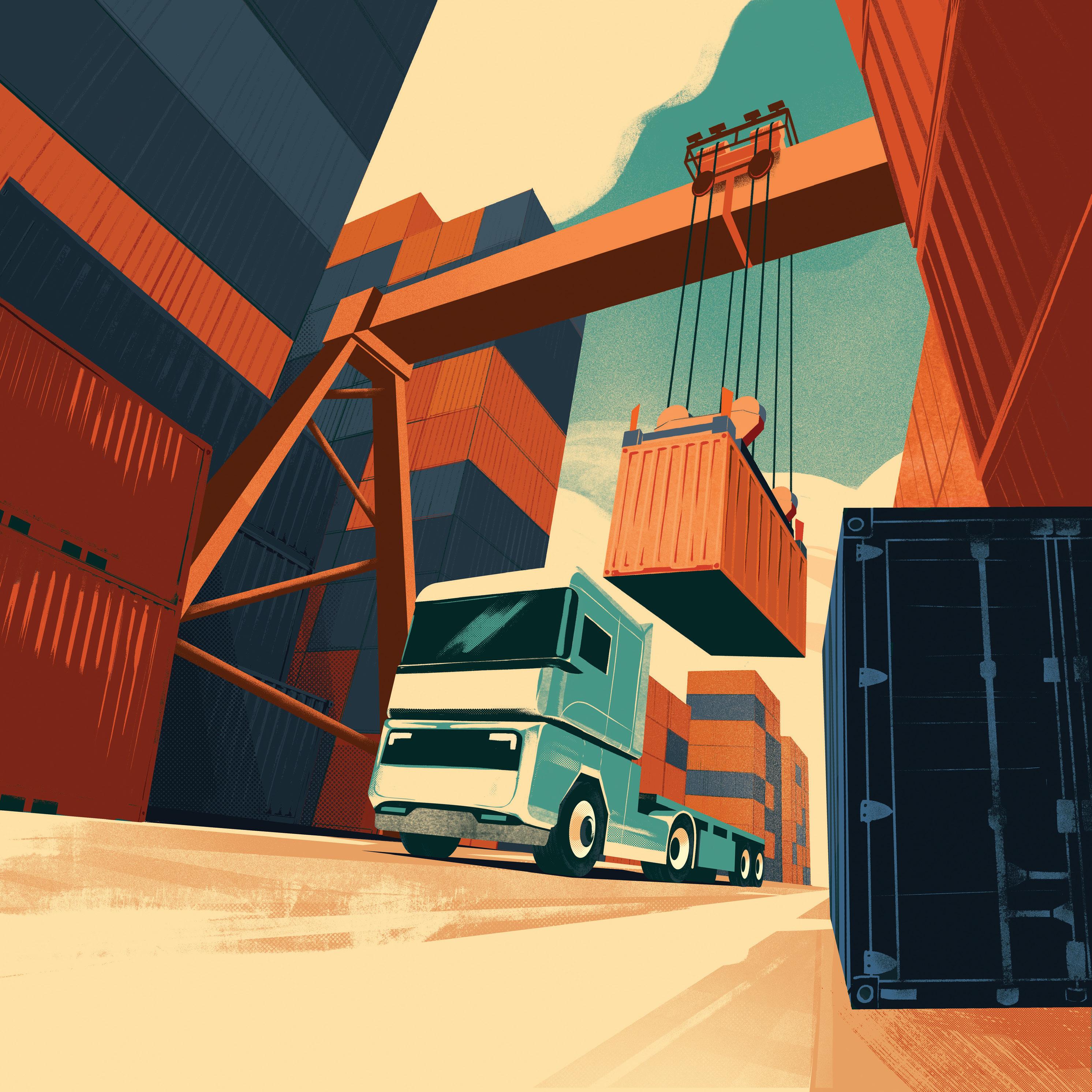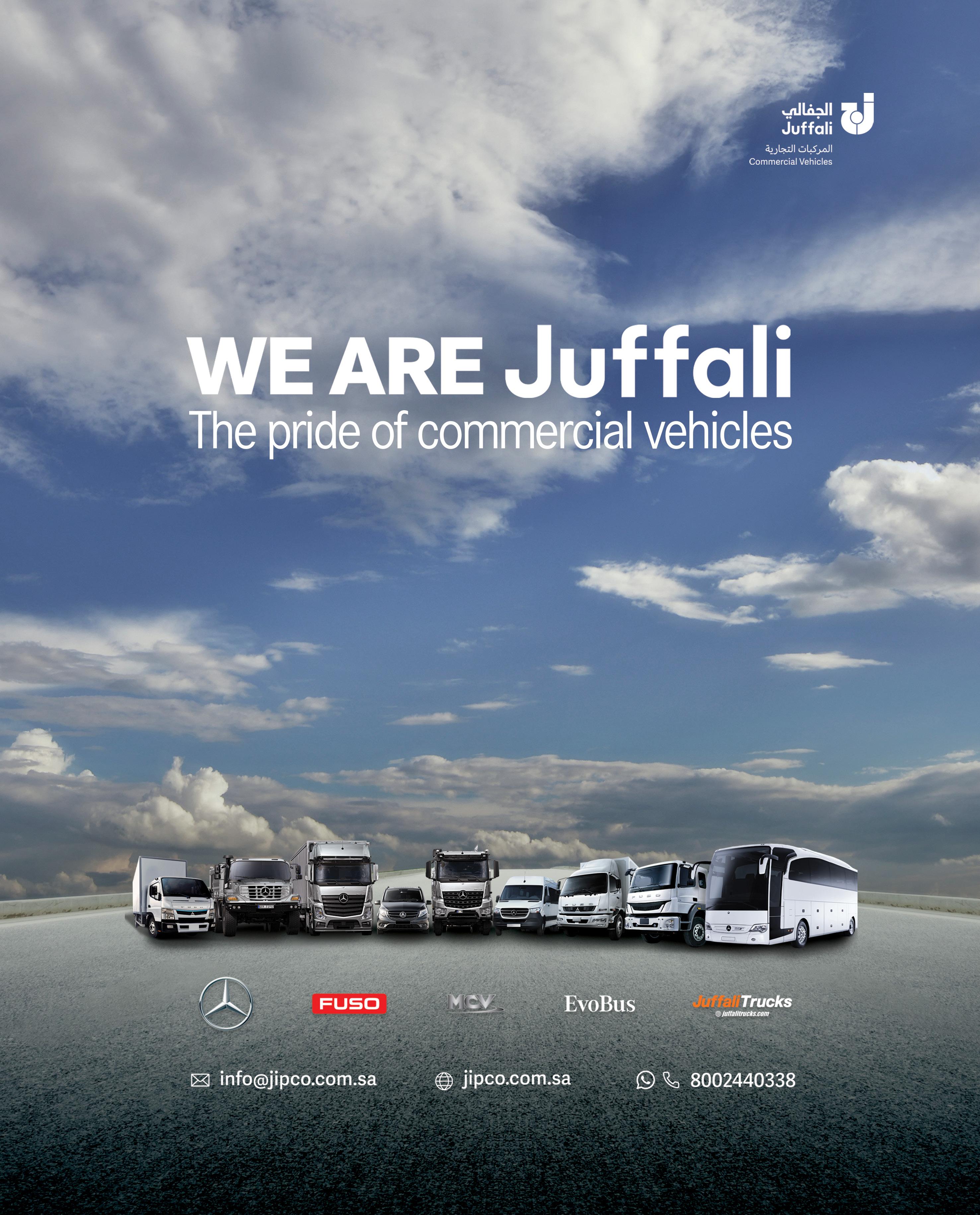FORWARDS THIS IS THE WAY

Al Masaood Automobiles’ CEO Irfan Tansel on how technology can transform fleet ownership in the UAE














Al Masaood Automobiles’ CEO Irfan Tansel on how technology can transform fleet ownership in the UAE












A couple of years ago, a member of the google AI tech team broke ranks and released a transcript of a conversation with an AI that he claimed showed signs of selfawareness. It didn’t take long for the lawyers to drop by and he was soon out of the door and smeared. And largely forgotten. Fast-forward to 2023 and the debate on artificial intelligence (AI) has reached fever pitched. Over the last couple of months, we have seen the emergence of Open ChatGBT as a thing for mainstream media (aka MSM for those who like their paranoia extra spicy) to implode over. Having used and tested it for real for the purpose of enlightened self interest –apparently, it really wants my job, man! – it clearly is a major step forwards in terms of what AI is capable of.
Personally, I’m not sure it quite captures that something which we recognise as normal human communication but it’s learning. And learning fast. And sharing that knowledge by factors of 10,000. I would love to tell you exactly how it is learning fast and how much it can learn, but I truly have no idea. The thing is... neither do the people that invented it. We’ve heard from philosophers and writers – ChatGBT write me a 2,000 word paper on how AI will
lead to the end of all civilisation – but now we are getting warnings from silicon valley, physicists and former tech CEOs. They are so worried they penned an open letter to AI developers that was soon riding high on internet algorithms with some of our greatest minds from Max Tegmark to AI pioneer Yoshua Bengio sending out a warning flare on the pace of development. Even Elon Musk, who used to part-own ChatGBT’s owner OpenAI, signed the letter and is now one of the most vocal warning flag shakers.
As exhaulted the signatories are and as vaunted as their ideals, you can’t help but think the genie is thoroughly out of the bottle, so maybe we should all sit back and prepare to be enslaved by our digital offspring. Or more optimistically, we could fully embrace the potential of AI and hope it’s dangers are overblown. At least for now. It is easy to imagine how an Open ChatGBT co-pilot could help drivers with feedback or even on-the-job training. Imagine those hours on a long trip assisted by a second voice to keep you alert. Plugged into the on-board telematics it breaks up your conversation about your favourite sports team to tell you you’re nodding off or driving erractically. Could AI take your job? Maybe. It could also save your life.
STEPHEN WHITE EDITOR, TRUCK&FLEET ME STEPHEN.WHITE@CPITRADEMEDIA.COMGROUP MANAGING DIRECTOR RAZ ISLAM raz.islam@cpitrademedia.com
+971 4 375 5483
MANAGING PARTNER VIJAYA CHERIAN vijaya.cherian@cpitrademedia.com
+971 4 375 5472
DIRECTOR OF FINANCE & BUSINESS OPERATIONS
SHIYAS KAREEM shiyas.kareem@cpitrademedia.com
+971 4 375 5474
PUBLISHING DIRECTOR ANDY PITOIS andy.pitois@cpitrademedia.com
+971 4 375 5473
EDITORIAL
EDITOR STEPHEN WHITE stephen.white@cpitrademedia.com
+44 7541 244 377
ADVERTISING
SALES MANAGER BRIAN FERNANDES brian.fernandes@cpitrademedia.com
+971 4 375 5479
SALES EXECUTIVE DANIEL THOMAS daniel.thomas@cpitrademedia.com
+971 4 375 5478
DESIGN

ART DIRECTOR SIMON COBON simon.cobon@cpitrademedia.com
DESIGNER PERCIVAL MANALAYSAY percival.manalaysay@cpitrademedia.com
PHOTOGRAPHY
MAKSYM PORIECHKIN maksym.poriechkin@cpitrademedia.com
MARKETING & EVENTS
EVENTS & CONFERENCE PRODUCER
PAUL GODFREY paul.godfrey@cpitrademedia.com
+971 4 375 5470
EVENTS EXECUTIVE MINARA SALAKHI minara.s@cpitrademedia.com
+971 4 433 2856
SOCIAL MEDIA EXECUTIVE DARA RASHWAN dara.rashwan@cpitrademedia.com
+971 4 375 5470
CIRCULATION & PRODUCTION
DATA & DISTRIBUTION MANAGER
PHINSON MATHEW GEORGE phinson.george@cpitrademedia.com
+971 4 375 5476
WEB DEVELOPMENT
ABDUL BAEIS
UMAIR KHAN
FINANCE
CREDIT CONTROL EXECUTIVE CAMERON CARDOZO cameron.cardozo@cpitrademedia.com
+971 4 375 5499
FOUNDER
DOMINIC DE SOUSA (1959-2015)

The publisher of this magazine has made every effort to ensure the content is accurate on the date of publication. The opinions and views expressed in the articles do not necessarily reflect the publisher and editor. The published material, adverts, editorials and all other content are published in good faith. No part of this publication or any part of the contents thereof may be reproduced, stored or transmitted in any form without the permission of the publisher in writing. Publication licensed by Dubai Development Authority to CPI Trade Publishing FZ LLC. Printed by Al Salam Printing Press LLC.
CPI Trade Media. PO Box 13700, Dubai, UAE. +971 4 375 5470 cpitrademedia.com
© Copyright 2023. All rights reserved.
We combine lines operating from major hubs in Europe, the Middle East and Asia, and offer full logistics expertises we are one of the go-to shipping and logistics supplier for a power list of Original Equipment Manufacturer (OEMs). Due to the increasing demand for our services, we continue to grow internationally.
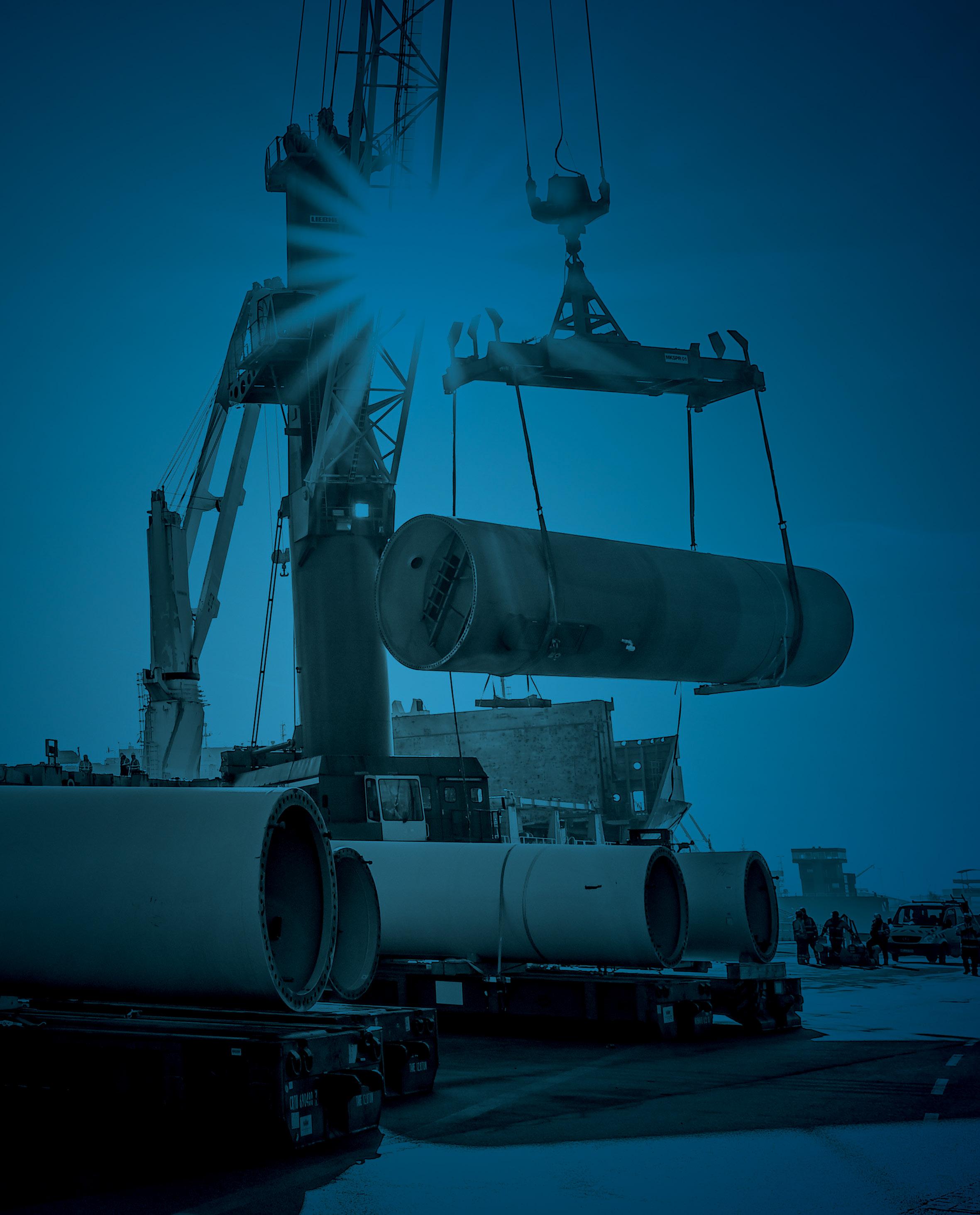



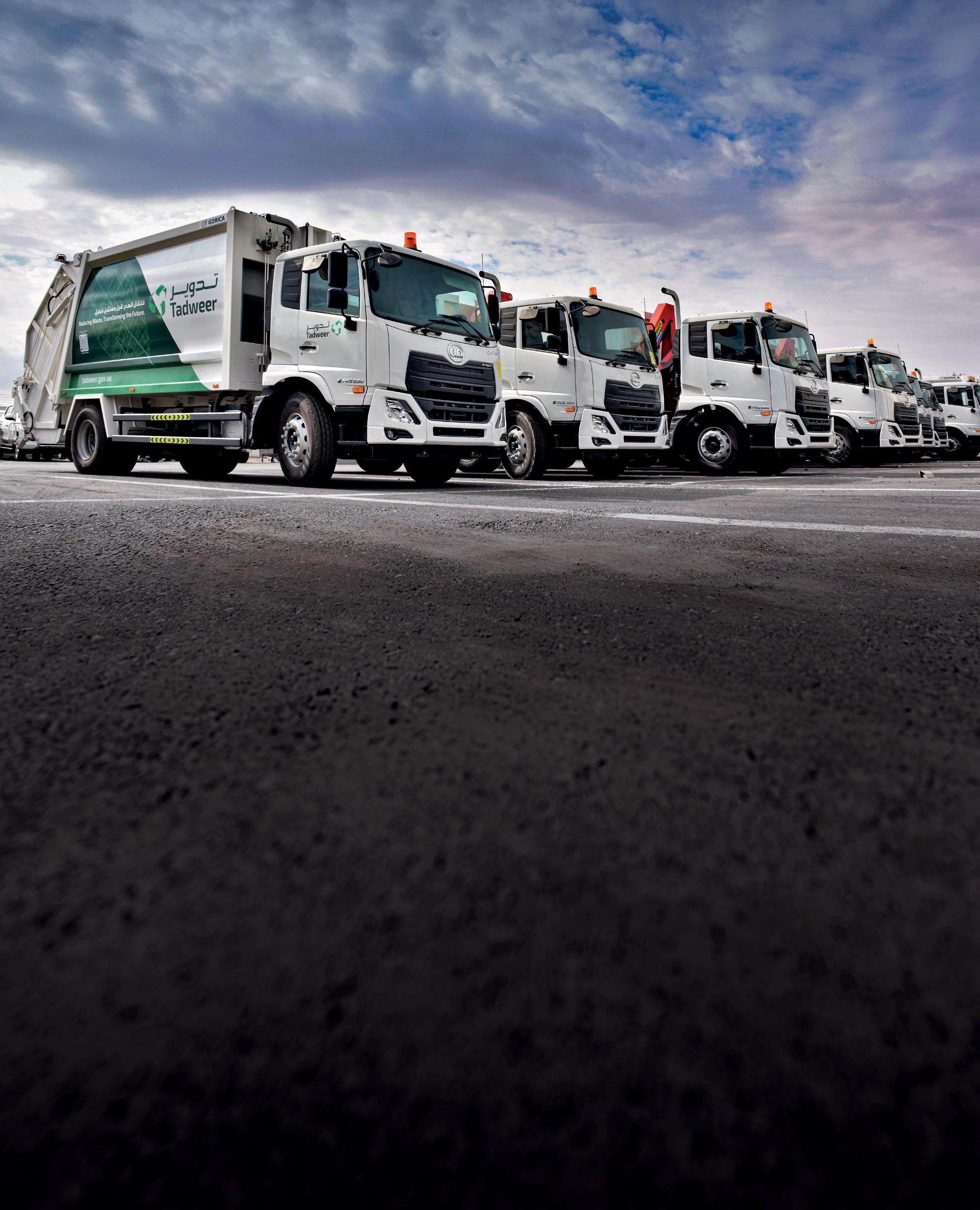
FLEET
UD Trucks MEENA and its Abu Dhabi importer Al Masaood say they have recorded a significant achievement in the UAE by ‘winning’ the Abu Dhabi Waste management Project. A highly competitive tender process supervised by Abu Dhabi municipality, Tadweer, and three subcontractors, Averda, Lavajet, and BEEAH, saw UD Trucks securing 300 out of the 420 trucks specified.
The Abu Dhabi Waste Management Project was divided into four lots, covering Abu Dhabi and Al Ain cities, with the primary
objective of improving the waste management infrastructure and services in the region. With rapid urbanisation and increasing population, waste management became important for environmental care and sustainability.
UD Trucks said it impressed the authorities meeting the highest specifications and standards required for the project and with the most competitive value proposition. The Quester HDE11 Euro 5 with ESCOT and Croner Euro 5 with Allison gearbox with highest specifications will be used in the deal, added
the Japanese manufacturer. The firm said the victory is significant as historically, the waste management sector in the UAE has been dominated by European brands: “UD Trucks’ success in winning this project shows that our vehicles can compete with the best in the world and that they are the ideal partner for large-scale infrastructure projects in our region,” it added in a statement.
Mourad Hedna, President of UD Trucks MEENA said UD Trucks is set to establish itself as a leading player in the waste management sector in the UAE and beyond.
“It is a game changer for UD Trucks in the region. We are definitely growing in all segments and Euro 5 will enable us to take more space from European manufacturers. I would like to thank all functions for the fantastic cross functional collaboration: UD MEENA and Al Masaood teams, S&OP, Logistic, manufacturing, and Engineering, who supported us, because, in the challenging supply and freight situation and the diverse variants of applications, such achievement would not have been possible if it wasn’t for the true collaboration with an Extra Mile Mindset.”
MORDOR INTELLIGENCE EXPECTS THE MIDDLE EAST FREIGHT AND LOGISTICS MARKET TO REGISTER A CAGR OF 6% IN THE NEXT HALF-DECADEUD TRUCKS TAKES 300 UNITS OUT OF 420 TRUCK TENDER OVERSEEN BY TADWEER, AND ITS THREE SUBCONTRACTORS, AVERDA, LAVAJET, AND BEEAH
ServeU says its new ServeU AI TaskMaster is a revolutionary application that will offer multilingual support to its diverse workforce with languages including Hindi, Urdu, Tamil, Malayalam, Bengali, Nepali, and Sinhalese. It claims the multilingual feature will be a first in the FM industry, “breaking down language barriers and ensuring seamless communication between technicians and clients”. The leading UAE-based facilities management (FM) solutions provider in the UAE explained that the app integrates the much-lauded AI-powered copywriting app ChatGPT and Microsoft Dynamics 365 Field Services to set - it claims - new industry benchmarks and provide exceptional services to clients.
The ServeU AI TaskMaster will be an upgrade from the legacy ServeU Technician 2.0 software and makes use of cutting-edge AI algorithms to expedite and streamline FM operations including work order management, asset tracking, and predictive maintenance. With the provision of quicker, precise, and personalised services, this AI-driven approach will increase efficiency, lowers costs, and enhances client satisfaction.
The app was developed entirely by ServeU’s in-house development team, and general manager Gary Reader added that unveiling the ServeU AI TaskMaster, embodies the firm’s dedication to “providing exceptional, technology-driven solutions” to clients.
The app will offer technicians with real-time data and a user-friendly interface that communicates in their preferred language, enabling better decision-making and providing tailored solutions to clients, explained ServeU. The feature was previously available only in English.
The Waste Lab a women-led, impactdriven startup based in the UAE, with a mission to reduce and repurpose food waste, has partnered with Kia to raise awareness on the global-wide issue of food waste, whilst guiding them towards practical solutions.
Kia is helping The Waste Lab with the use of the Kia Niro Hybrid in the UAE, the Kia K5 Hybrid in Oman, and the Kia K8 Hybrid in Saudi Arabia, as a means of transportation of the food waste into nutrient-rich compost.
“As we prepare for Ramadan, we often see a surge in excessive buying and discarding of food,” said Lara Hussein and Ceylan Uren, The Waste Lab co-founders. “By emphasising the advantages of sourcing locally and minimizing food waste, we
can raise awareness and promote responsible consumption. Additionally, diverting these precious resources from landfills can have a positive impact on reducing greenhouse gas emissions and supporting soil health, we believe that this initiative with Kia can be transformative and have a positive impact on our world, and we are excited to bring the
community onboard to galvanize support. We are grateful to Kia for lending their support and collaborating on this impactful project.”
Yaser Shabsogh, COO, Regional HQ, Middle East & Africa, Kia, added: “We are excited about our partnership with The Waste Lab and engaging with the community in our collective effort to promote sustainable solutions.

FLEET
PEUGEOT Middle East is supplying DHL Middle East with the region’s first fully electric fleet of Light Commercial Vehicles (LCVs). PEUGEOT is currently the only automotive manufacturer in the Middle East to offer fully electric LCVs, reinforcing the brand’s mission to lead the market in electrification and carbon net zero automotive products and exceed the expectations of its customers.
The agreement with DHL will see a fleet of fully electric LCV PEUGEOT e-Partner and e-Expert vans operational in the region,
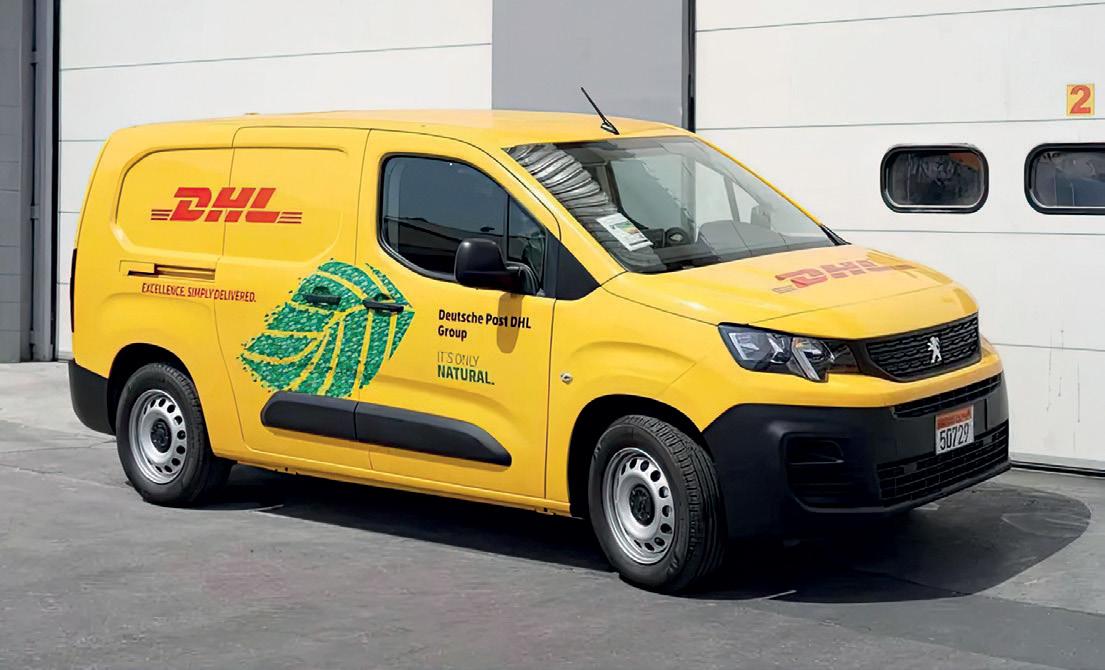
with the first vehicles on the UAE’s streets before being rolled out in other regional markets including Bahrain and Jordan, followed by Saudi Arabia, Kuwait and Qatar. As LCVs are typically on the road far more than passenger vehicles, replacing existing non-electric fleet vehicles with fully electric vehicles (FEVs) means zero noise, zero emissions and zero odour contributing to healthier cities working towards the company’s Dare Forward 2030 vision.
Commenting on the partnership, Neeraj Kumar, managing director of European Brands,
Stellantis Middle East, said: “In 2022, Peugeot led the European market in the B segment of 100% electric vehicles in all categories – passenger cars and LCVs, and we are committed to deliver our bold targets for electrification in the Middle East. “Through our partnership with DHL, we are pioneering a new, greener future for logistics in the region. Together we share a common commitment to building a more sustainable future for mobility and have pledged to meet carbon net zero targets which will benefit our communities and future generations. This agreement is a true testament of our commitment to electrification in the region and underscores Stellantis’ commitment to being industry champions in climate change mitigation.”
In a visit to the Middle East in 2022, the global PEUGEOT CEO Linda Jackson confirmed that the brand is on track to deliver its bold targets for electrification. This year all models in the PEUGEOT line-up will be electrified.

Renault Trucks Middle East recently hosted the senior Volvo Group executive team including CEO Martin Lundstedt.
One of the most powerful leaders in the global commercial vehicles industry, Renault Trucks Middle East revealed on LinkedIn that Lundstedt was “encouraging” and “very positive about the Renault Trucks journey in the Middle East” over the past few years.
Martin Lundstedt was joined by his executive team Jens Holtinger, Lars Stenqvist, Per-Erik Lindström, Roger Alm and Helena Landbergsson; at the Renault Trucks Middle East
head office in Dubai. According to Renault Trucks Middle East, Lundstedt’s comments, “really reflects the dedication and ambition of the
whole Renault Trucks team but also all our importers to strongly increase our brand in the market.
“There is no doubt that Renault Trucks is a strong truck brand and that the achievements done in the Middle East are remarkable.”
“It was also the opportunity for Martin and his Executive team for a townhall meeting for the Volvo Group Middle East team, congratulating on the 2022 results and giving insights on the Volvo Group strategy and vision.

“Thank you Martin Lundstedt and the Executive team for your visit; it’s always inspirational to hear from you having a close dialogue with Volvo Group employees.”
CHANNEL
Al-Futtaim Automotive has described its newly inaugurated The Zone by Al-Futtaim as a first-of-its-kind experience for City Walk Dubai visitors.
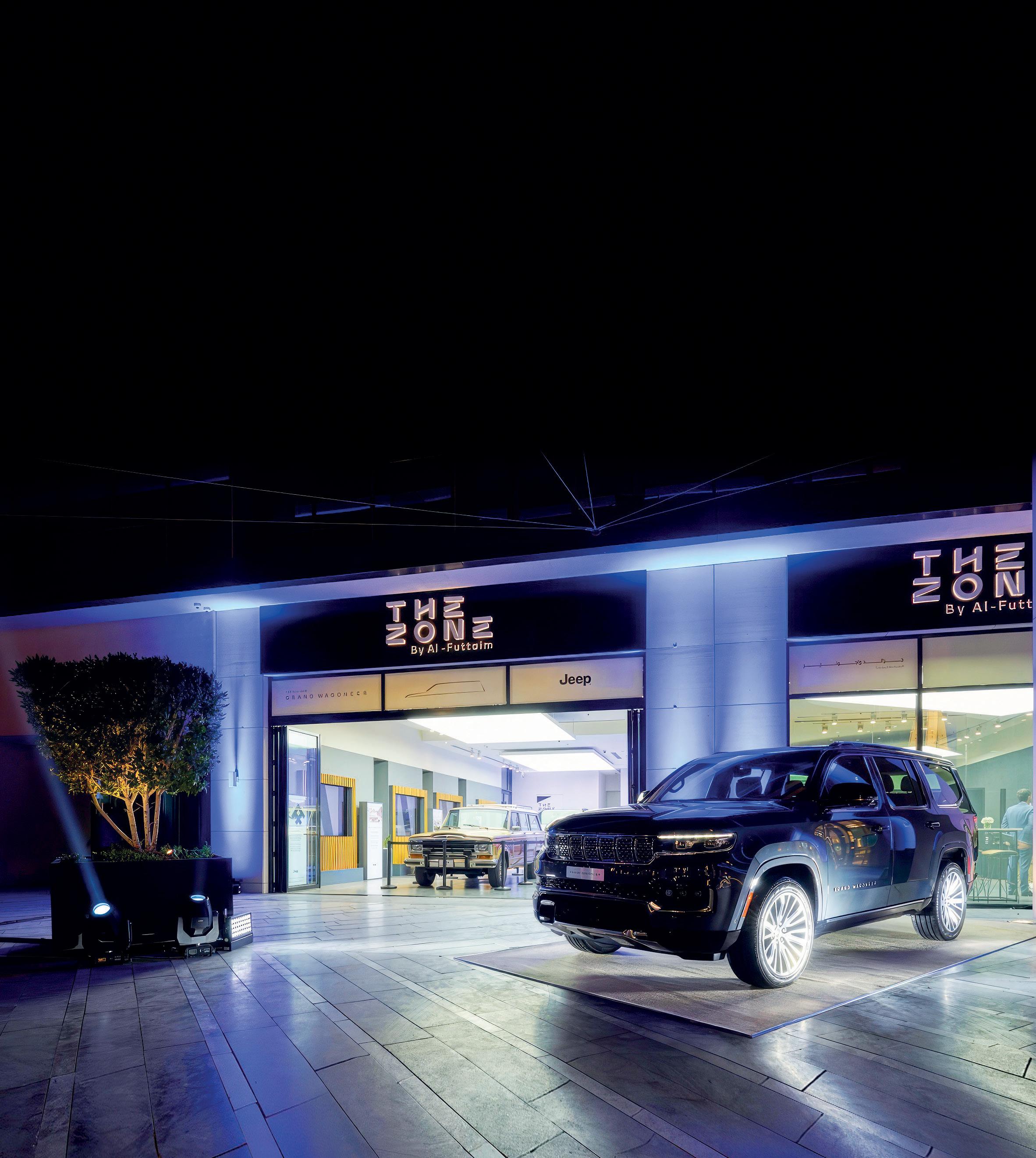
The Zone merges the firm’s digital, lifestyle and customer-centric approaches to create a “dynamic space that shapeshifts to fit diverse brand experiences”.
The full line-up of AlFuttaim Automotive’s brands,
solutions and services will be showcased at this destination for the next two years.
Heading the line-up of vehicles is Jeep’s most luxurious and technologically advanced full-size SUV, the all-new Grand Wagoneer.
“The Zone by Al-Futtaim reflects the diverse demands of today’s customers, they want to be constantly surprised by a brand, they want to interact
FLEET
Leading UAE-based smart and green facilities management (FM) company Farnek has promoted Trinidad and Tobago National Ryan Mitchell to Head of Quality, Health, Safety, Environment and Wellbeing (QHSEW).

with new innovations, explore Mobility-as-a-Service, see multiple new showcases,” said Al-Futtaim Automotive. “It is the ultimate experience of all things Al-Futtaim Automotive.”
From the newly launched BYD to the ever-popular Toyota & Lexus and the global brand Hertz, these are the brands planned to feature at The Zone by Al-Futtaim throughout 2023.
Mitchell joined Farnek in 2019 as manager of worker welfare and quality and was directing Farnek’s worker welfare policies and activities. At Expo 2020, he ensured the well-being of its onsite workforce, operating within the guidelines set by the Expo committee and several internationally renowned bodies, including the UK’s Health & Safety Executive. Mitchell was also part of the team awarded the Gold Card Award at the Taqdeer Awards last year, recognising excellence in worker welfare and HSE.
Markus Oberlin CEO, Farnek, said, “Ryan is the ideal candidate to head up our QHSEW division and fully deserves this promotion, epitomising our ‘Farnek First’ policy of promoting from within. He will be tasked with facilitating excellence in performance throughout our service delivery across all aspects of our business by developing, implementing and managing international best practice.
“By providing professional QHSEW leadership, he will support and advise project teams, employees and, wherever appropriate, Farnek’s contractors and create and maintain the metrics to improve and automate data-driven decisions, using Farnek’s in-house technology solutions, while aligning with our net zero roadmap.”
INSIDE THIS ISSUE: INTERVIEW WITH AL MASAOOD’S IRFAN TANSEL, FITBAR AND YANGO DELIVER LAST MILE PERFECTION, AND MUCH MORE!
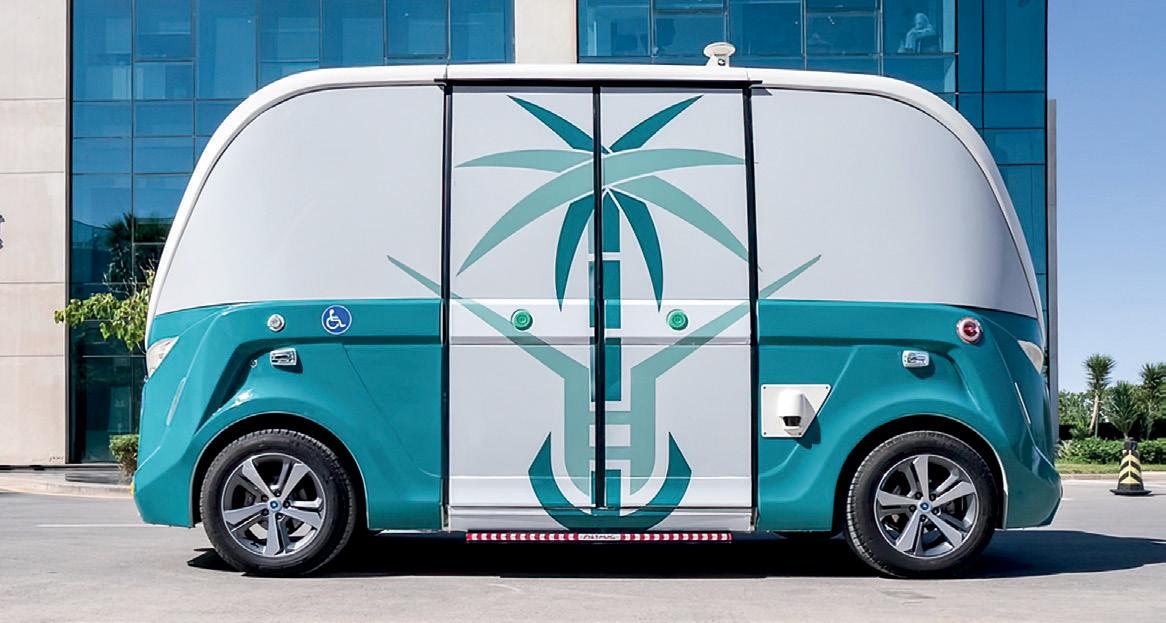
The Deputy Minister of Transport and Logistics, Dr Rumaih Al-Rumaih, has revealed the Kingdom of Saudi Arabia’s first foray into the development of autonomous electric vehicles.
The trial phase of ’Dhahaina’ (’Smart’) AV was formally launched at the Riyadh Business Front this week with the intention of boosting the “awareness and increase acceptance of AV technology in society”.
Dr Al-Rumaih added that Dhahaina is the first step in in a longer process that will see the development of AV legislation, regulations, and supporting systems.
Dr Al-Rumaih highlighted the Ministry’s embrace of innovative transportation techniques, and its plans to utilise advanced technologies in the transportation and logistics industry, during the event.
As per the objectives set in the National Transport and Logistics
Strategy, the ministry is aiming to provide solutions for smart mobility and anticipate the future development of the market. By launching this trial, the Ministry aims to reduce the number of transport-related accidents and fatalities, improve intracity mobility, and minimise the impact of the transportation sector on the environment.
Riyadh Business Front is owned by the ROSHN Group –which is taking a novel approach to
incorporating modern technology into the integrated communities it is building across the Kingdom.
ROSHN promotes sustainability by offering pedestrian-friendly streets and eco-friendly modes of transportation for commuting within its communities, while providing connections to a wide range of public and private transportation options that connect its customers to the wider city.
Oussama Kabbani, the Group
Chief Development Officer at ROSHN Group, expressed his enthusiasm in collaborating with the Ministry of Transport and Logistic Services, stating,: “The ’Dhahaina’ initiative is a significant leap in the technical development of transportation in the Kingdom. This trial aligns with ROSHN’s commitment to humanizing the civil experience and adapting technology to serve people within the highquality real estate environments of our communities across the Kingdom.”
Dr Al-Rumaih, meanwhile, emphasised that these trials align with the Ministry of Transport and Logistics Services’ ongoing efforts to establish a national regulatory framework for AVs in collaboration with relevant entities. The primary objective is to unify efforts and establish appropriate regulatory frameworks to enable autonomous vehicles while prioritizing user safety, simplifying procedures, and attracting investors.
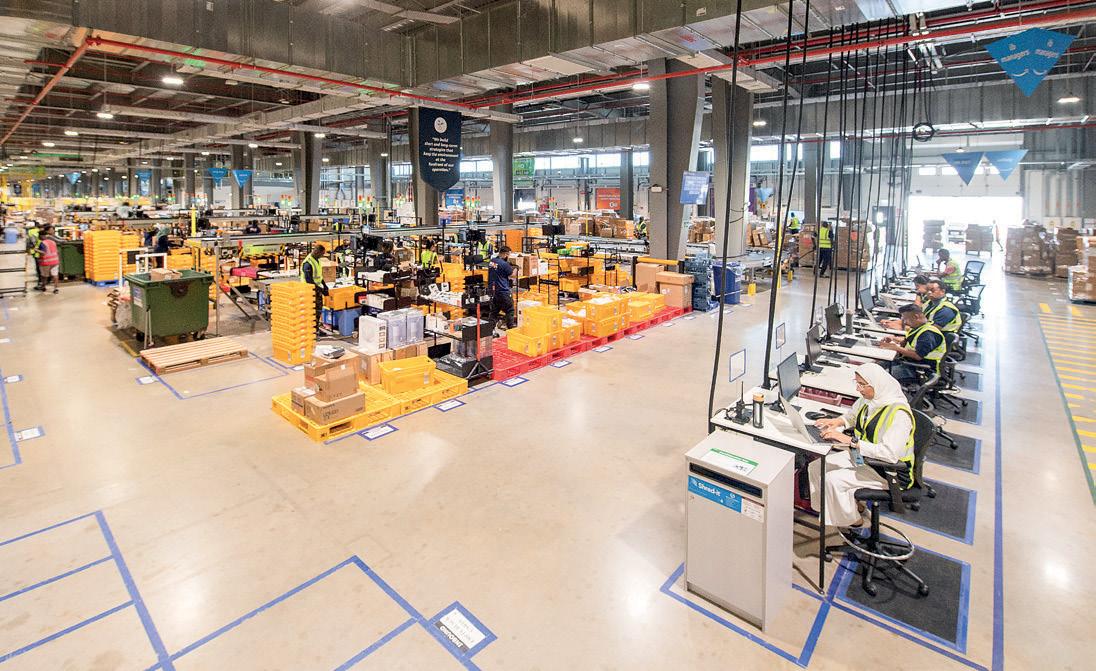
FLEET
Amazon has inaugurated a new Fulfillment Center which almost doubles its storage in the UAE. As the company gears up for increased customer demand during the Holy month of Ramadan, its new facility has a storage capacity of 2.1 million cubic feet and boosts the online retailer’s total storage capacity in the UAE by 70%.
Prashant Saran, director of operations for Amazon MENA, said: “With the opening of this facility, we are geared up to offer even more products to more customers during the busy time of Ramadan. The new Fulfilment Center will be equipped with Amazon’s latest global innovations to ensure speed, safety and reliability with every order. As a good corporate citizen, we always strive to create opportunities for employees, partners and the community.”
The investment will enable Amazon to serve customers with a
wider selection of products across electronics, appliances, groceries, fashion, books and more. Amazon brings 25-plus years of logistics technology and innovation to support the country’s ecommerce ecosystem.
The new facility will house close to three kilometers of conveyance equipment, spread across five floors and covering an
area of more than 350,000 sqft.
Supporting Dubai and UAE’s agenda for a digital economy, the enhanced capacity will provide entrepreneurs and small and medium-sized businesses (SMBs) access to Amazon’s fulfillment capabilities and world-class logistics expertise, said the firm. In order to reach a wider customer
base faster and more efficiently, SMBs can take advantage of the Fulfilled by Amazon offering that allows them to store, pick, pack and ship customer orders through Amazon, it added.
The company recently announced its commitment to host products from 100,000 businesses, including local SMBs, on its UAE website Amazon. ae by 2026, in support of the Dubai Economic Agenda D33 to make Dubai a global digital economy. The facility is located in Dubai South’s Logistics District, enabling efficient services, speed, operations, and uninterrupted access to Jebel Ali Port and Al Maktoum International Airport (DWC).
“At Dubai South, our mandate is to support the government’s economic diversification efforts through the different services and solutions that we provide to local and international companies,” said H.E. Khalifa Al Zaffin, executive chairman of Dubai Aviation City Corporation and Dubai South.
LION5, AN ALL-ELECTRIC CLASS 5 TRUCK POWERED BY LIONBATTERY PACKS, LAUNCHES IN US / DAF REVEALS NEW ROBUST LINE-UP OF NEW GENERATION XDC AND XFC TRUCKS
LION5 ROARS
315HP
The Lion Electric Company, the US-based manufacturer of all-electric medium and heavyduty vehicles, has launched the Lion5, an all-electric Class 5 truck powered by LionBattery packs, Lion’s new in-house engineered and manufactured 800V battery packs.
On the show floor, Lion premiered its first-ever Lion5, which has a maximum payload of up to 12,500 lbs. and is slated for production before year-end.
“At Lion we’ve always believed in finding a better way to serve fleets and benefit the environment and the Lion5 is our most recent example of this yet. The design and performance of this innovative all-electric truck is sure to redefine
how our customers answer their commercial fleet needs,” stated Brian Piern, Lion Electric’s Chief Commercial Officer.
He continued with, “It is because of the success of the Lion6 that we are able to introduce today our next generation platform, the Lion5, the premier vehicle for last mile delivery and more, featuring the first application of LionBattery, our in-house designed and manufactured battery packs.”

From the cab design to the electrical architecture to the chassis technology, the Lion5 is uniquely positioned to serve the market.
This new all-electric commercial vehicle truck cab chassis has design features desired in GVWR (“Gross
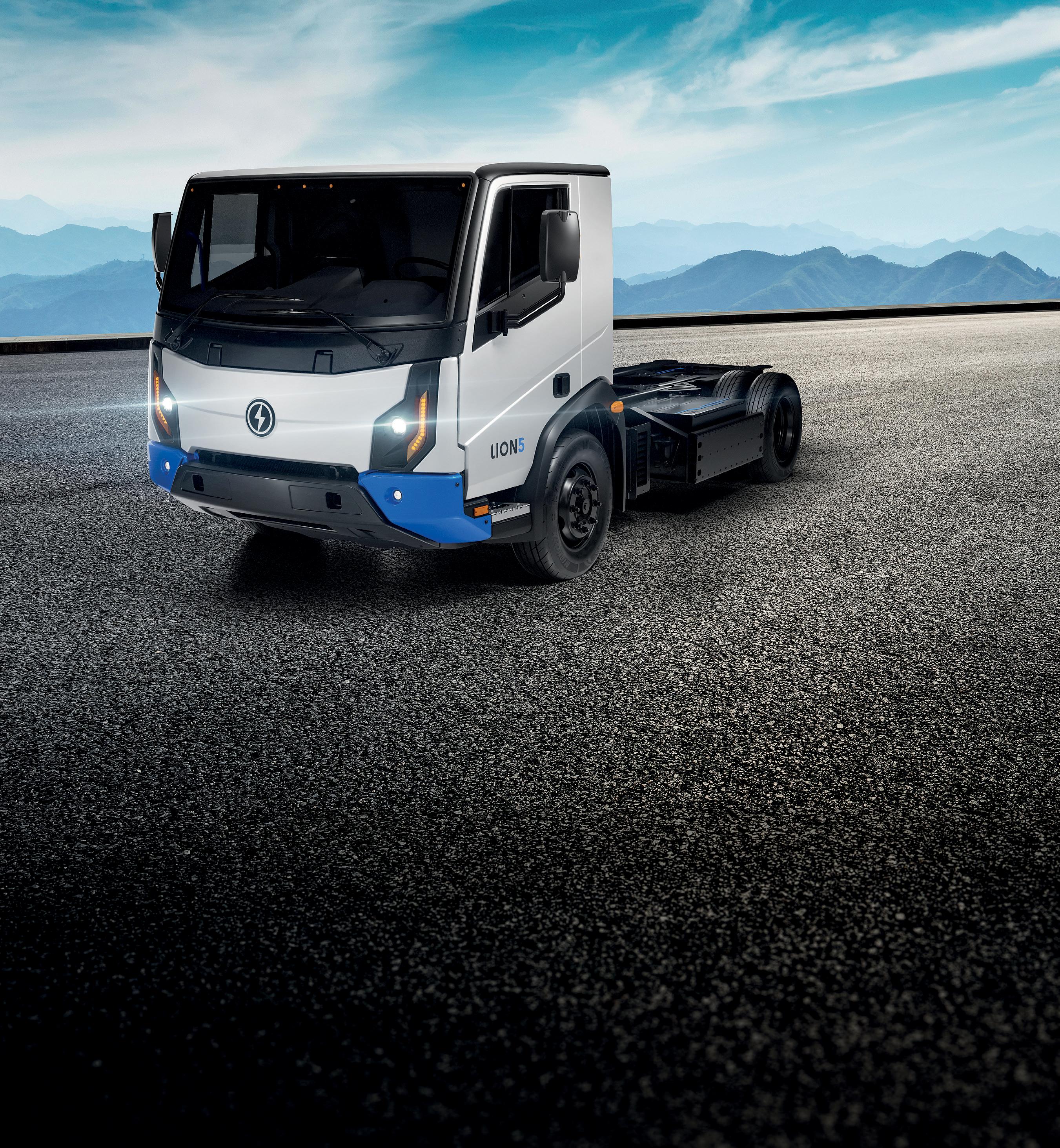
Vehicle Weight Rating”) Class 5, while offering configurations of 19,500 lbs (8.8t). up through 26,000 lbs (11.7t). (Class 6) GVWR. Whether requiring payload capacity, towing capability, or both, the Lion5 harnesses 315 HP (“Horsepower”), 2,360 lb-ft of torque, and can notably be equipped with a GCWR (“Gross Combined Weight Rating”) up to 30,000 lbs.
Drivers and passengers will appreciate the premium ride and handling performance derived from the Lion5’s low centre of gravity, well-balanced weight distribution front-to-back with the low cab forward (“LCF”) design and the LionBattery packs placement, as
well as from the adaptive auto leveling 4-wheel independent suspension system standard equipped on select model variants. For added safety and traction management, the Lion5 truck has electronic stability control (“ESC”), traction control, hill start assist, and a limited slip differential installed as standard.
At the front, the Lion5’s cab provides considerable roominess, at 96-inches wide, and has been purposefully designed to be stationary with a cutaway configuration option enabling seamless passthrough between the cab and any suitable body upfit.
When it comes to exiting the vehicle, the US firm has engineered
FAST OPTIMISATION
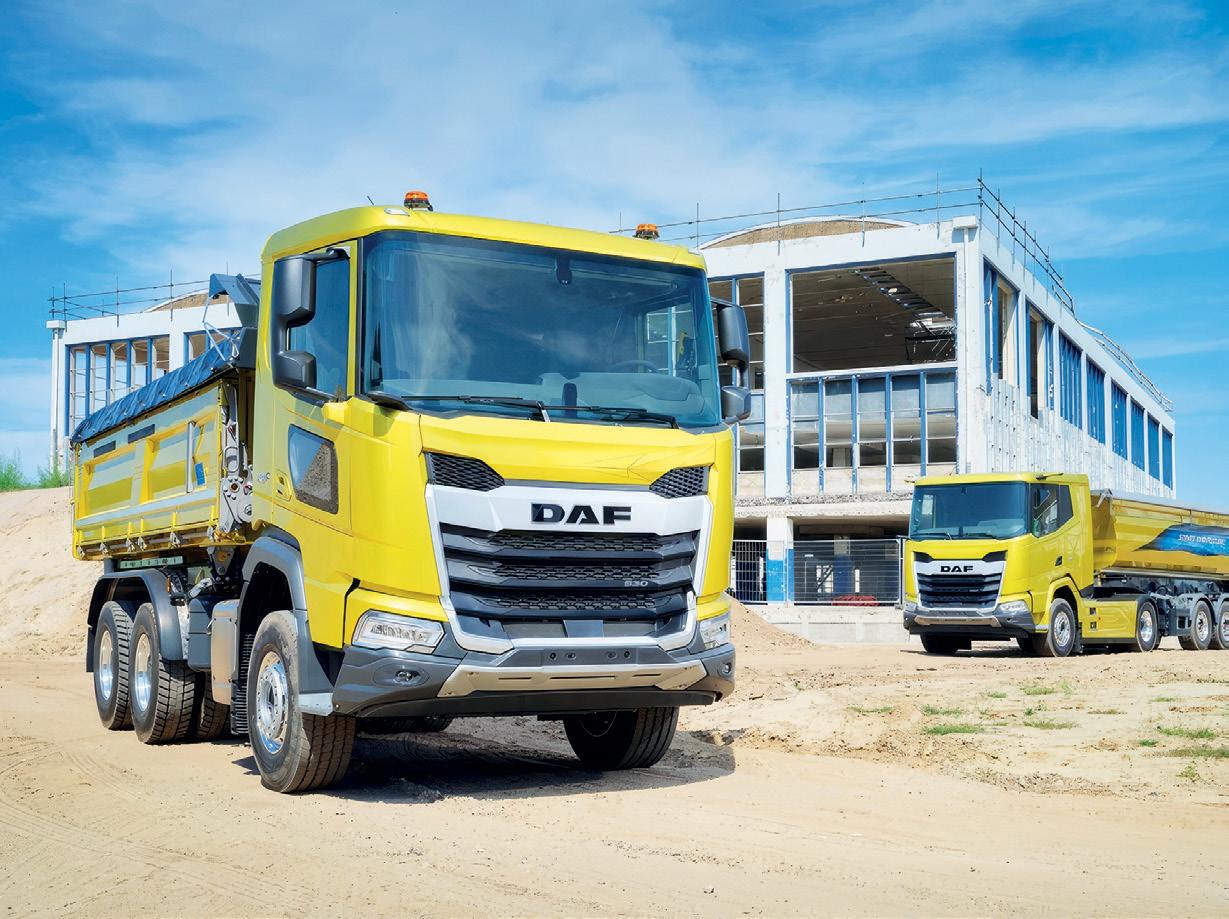

The New Generation XD, XF, XG and XG+ trucks have changed the transport industry, setting new standards in efficiency, safety and driver comfort, with the XF, XG and XG+ being awarded ‘International Truck of the Year 2022’ whilst the XD received this prestigious recognition for 2023.
ADVANCED TRANSPORTATION
the steps to form into the cab for immediate visibility from the driver’s or passenger’s seat when their respective door is open. Adding to the safety and ease of entering and exiting, the adaptive independent suspension variants have a programmable feature that lowers the vehicle 3-inches when opening the door. The Lion5 has been engineered to be upfit with
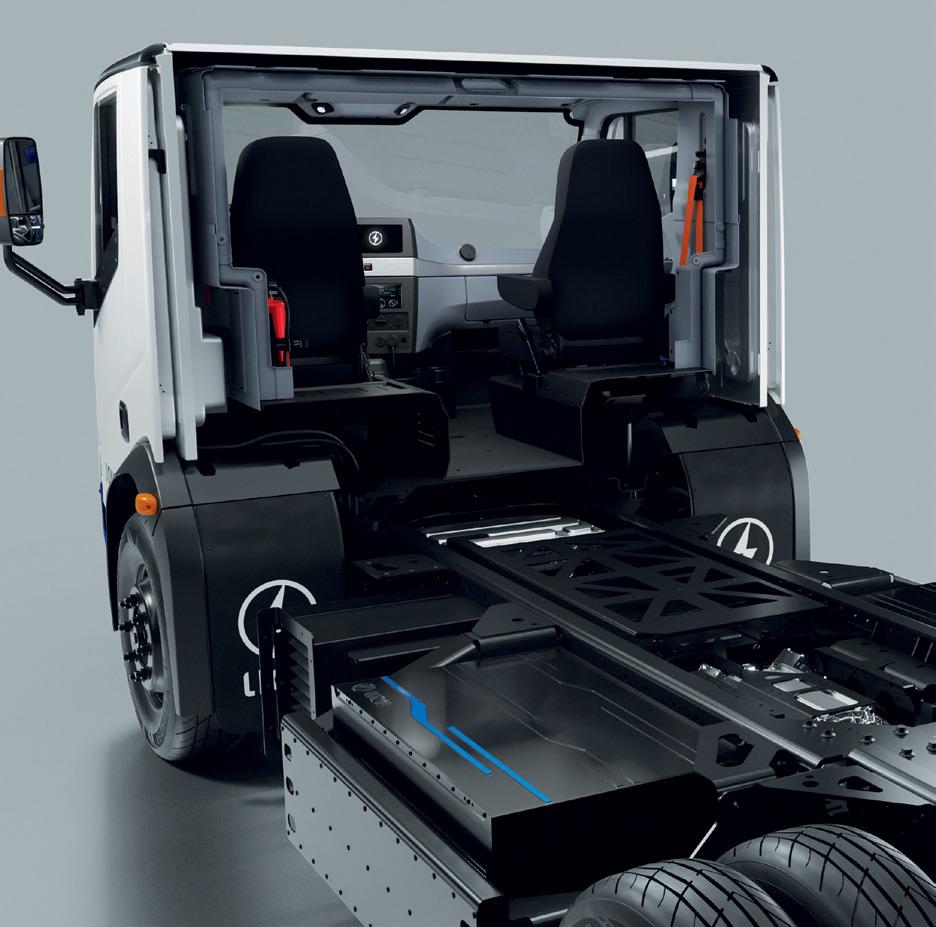

any suitable body application. Body builders have access to 4kW of low voltage and up to 32kW of high voltage when equipped with the optional provisioned ePTO (“electric Power Take-Off”) interface. For additional flexibility, upfitting operations can choose from multiple LionBattery pack placement configurations, depending on build specification selections of fleet buyers.
The New Generation XDC and XFC construction vehicles are distinguished by the dominant black grille and a robust steel bumper, steel radiator protection plate and two maintenance free LED fog lights – deeply recessed in the bumper for maximum protection. A flexible lower step is available as an option. The New Generation XDC and XFC have a high ground clearance of up to 40 centimetres and an approach angle of 25 degrees which makes them ideal for applications which require regular driving off-road. The XDC and XFC are available in 8x4, 6x4 and – for the first time – 4x2 axle configurations. For excellent traction under tough conditions, DAF offers its XDC and XFC trucks with a choice of double-drive, lowmaintenance tandems: from a 19-tonne light weight tandem with single reduction (SR1132T), leaf spring suspension and disc or drum brakes to 21- and 26-tonne variants
(SR1360T) with single reduction, disc brakes and air suspension. For heavy and off-road applications the 21- and 26-tonne tandem is also available with hub reduction (HR1670T). The tandems are available with wide range of rear axle ratio options from 3.46:1 to 7.21:1 to perfectly tune the specification to the individual task.
The entire range of DAF tandem sets is also available for the new on-road 6x4 and 8x4 New Generation DAF vehicles, needing superb traction and high payloads. The 6x4 and 8x4 rigids are available as XD and XF. The 6x4 tractor is available as an XG and XG+, as are 8x4 rigids with a steered trailing axle.

The 8x4 heavy duty tractor with steered pusher axle for exceptional transport applications is available as a XF, XG and XG+. For applications that may occasionally require extra traction, DAF offers a first-class hydraulic front-wheel drive option for 4x2 tractor versions of the XD, XDC, XF and XFC. This robust and maintenance-friendly ‘PXP’ system can be activated via a switch on the dashboard.
Entirely new are the ‘XD Extra Robust’ and ‘XF Extra Robust’. The series combines the robust cabs of the XDC and XFC with an on-road chassis.

Effective fleet management is more critical than ever before because it not only ensures the smooth running of operations but also helps to reduce costs, improve safety, and increase efficiency. According to a recent report published by MarketsandMarkets, the Fleet Management market is expected to grow at a Compound Annual Growth Rate (CAGR) of 15.5%, from USD 25.5 billion in 2022 to USD 52.4 billion by 2027. Today, autonomous technologies and fleet telematics have given a glimpse into the potential to significantly reduce accidents caused by human error, making transportation safer for everyone. However, there are still challenges that need to be addressed before fully autonomous vehicles can be safely deployed on a large scale. Customers now expect to be able to research, purchase, and service their vehicles via digital channels, which presents a challenge. They expect traditional brick-andmortar dealerships to provide a frictionless online experience while maintaining a personal touch. To meet these expectations, dealerships need to invest in digital tools and technologies that enable them to provide a seamless online experience. They also need to train their staff to use these tools effectively and provide exceptional customer service both online and in-person.
The shift in consumer values, particularly among the younger generation, is another challenge. Younger customers, unlike their predecessors, place less emphasis on car ownership and more emphasis on car
usage. This trend towards usership compels dealerships to investigate alternative business models, such as car-sharing and subscription services. The shift in consumer behaviour has also led to an increased demand for eco-friendly and technologically advanced vehicles, as younger customers prioritise sustainability and connectivity features in their car usage. Dealerships must adapt to these changing preferences to remain competitive in the market.
These digital and electrification mobility trends can significantly impact fleets of the future by reducing carbon emissions, improving fuel efficiency, and enhancing operational efficiency. This can lead to cost savings for fleet owners and a more sustainable transportation system for society.


The industry may have come a long way in recent years when it comes to adopting and developing new technologies—but what will the future hold? Here are some of our industry trend predictions for 2023:
1. Electrification: Decarbonisation goals and emission regulations are driving the electrification of transportation, which will define the “fleet of the future”. On average, for each 1% of EV deployed, emissions would reduce by 0.5%, while at the best-case scenario emissions reduce by 0.9%. In the Middle East, Saudi Arabia and the UAE are becoming early adopters of electric vehicles in the Middle Eastern region. The Saudi Arabian Standards Organisation (SASO) has plans to issue
regulations for the use of electric vehicles. The Road Transport Authority (RTA) of the United Arab Emirates has issued advisory messages and worked to develop charging stations in the country. The Middle East and African electric vehicle market is expected to reach USD 93.10 million, registering a CAGR of more than 15% during the forecast period. As a growing trend in the mobility industry, electrification will inevitably cascade to fleets, and we anticipate seeing more electric fleets in the years to come. Advancements in battery technology and charging infrastructure are also expected to contribute to the market’s growth.
2. Advanced Drive Assistance Systems (ADAS): Human error is responsible for 94% of all accidents (source: US DoT), and there is potential for machines to be more reliable. ADAS technologies have the potential to avert 20,000 deaths annually, which accounts for approximately 62% of all deaths that occur on the road. There have been developments in a complex combination of technologies involving cameras, software, and sensors that are used to operate in complicated environments. While many fleet management companies have adopted standard solutions, such as driver behaviour monitoring, GPS, and in-cab cameras, AI-powered solutions will take fleet enterprise solutions to even higher levels of safety with driver scoring programs, such as automatic coaching and positive recognition programs.
3. Fleet operators driving the adoption of electric and autonomous vehicles: Fleet management is becoming
Customers now expect to be able to research, purchase, and service their vehicles via digital channels, which presents a challenge”
Even though the future of the automotive industry is fraught with challenges, there are
increasingly popular, and we are witnessing its growth. It has been determined that leasing fleets is 10–15% more cost-efficient than outright ownership (source: EC/Ricardo). Investments in electric and autonomous infrastructure are being driven primarily by fleet operators. Between 27–30% of all global emissions are caused by transportation (source: IEA). Electrification will result in cost reductions across the board for servicing and maintenance of fleets.
4. Technology continues to help fleet increase efficiency and improve performance: Fleet telematics have made advancements in their data generation, in addition to being able to manage uptime and the entire maintenance lifecycle. The costs associated with accidents have been cut by 22% as a direct result of this data. In the year 2020, fleet tracking was responsible for a 54% increase in the improvement of customer service. These results demonstrate the significant impact that technology can have on both safety and customer satisfaction in the transportation industry. Al Masaood Automobiles has been providing large fleet after sales services for clients in the government and semi-government, and the use of these technologies has assisted in uptime and reporting as well as efficiencies for timely services on a large scale. It is likely that more companies will adopt fleet tracking systems in the future to achieve similar benefits.
5. Digitisation and data: The field of automobile manufacturing is being profoundly influenced by the convergence of artificial intelligence and connectivity. The automotive industry stands to gain a great deal from the implementation of omnichannel platforms as the arrival of autonomous vehicles ushers in an era of abundant data. With the help of AI and connectivity, the automotive industry can leverage this data to improve customer engagement and enhance overall operations.
6. Shared mobility: It encompasses an increased level of utilisation across all types of vehicles and all aspects of trip planning. This results in decreased overall costs for customers on their journeys and accelerates the proliferation of innovative transportation systems. Shared mobility is also a sustainable solution that reduces traffic congestion and lowers carbon emissions, making it an attractive option for environmentally conscious individuals. As such, it has the potential to revolutionise the way people move around cities and urban areas.
7. Changing customer behaviour: Customers want services that are ‘convenient’ and ‘smart.’ Going forward, the process of providing services will be simplified in a significant way. Reserving the use of a vehicle or going for a test drive, leasing a different model, placing an order for a ride, or cancelling a service will be as simple and hassle-free as before. This will not only improve the customer experience but also increase the efficiency of the service provider. With simplified processes, more customers can be served in less time, leading to higher revenue and growth opportunities.
Even though the future of the automotive industry is fraught with challenges, there are also opportunities. For instance, Al Masaood Automobiles provided assistance to government entities in the maintenance of fleets that were specifically devoted to
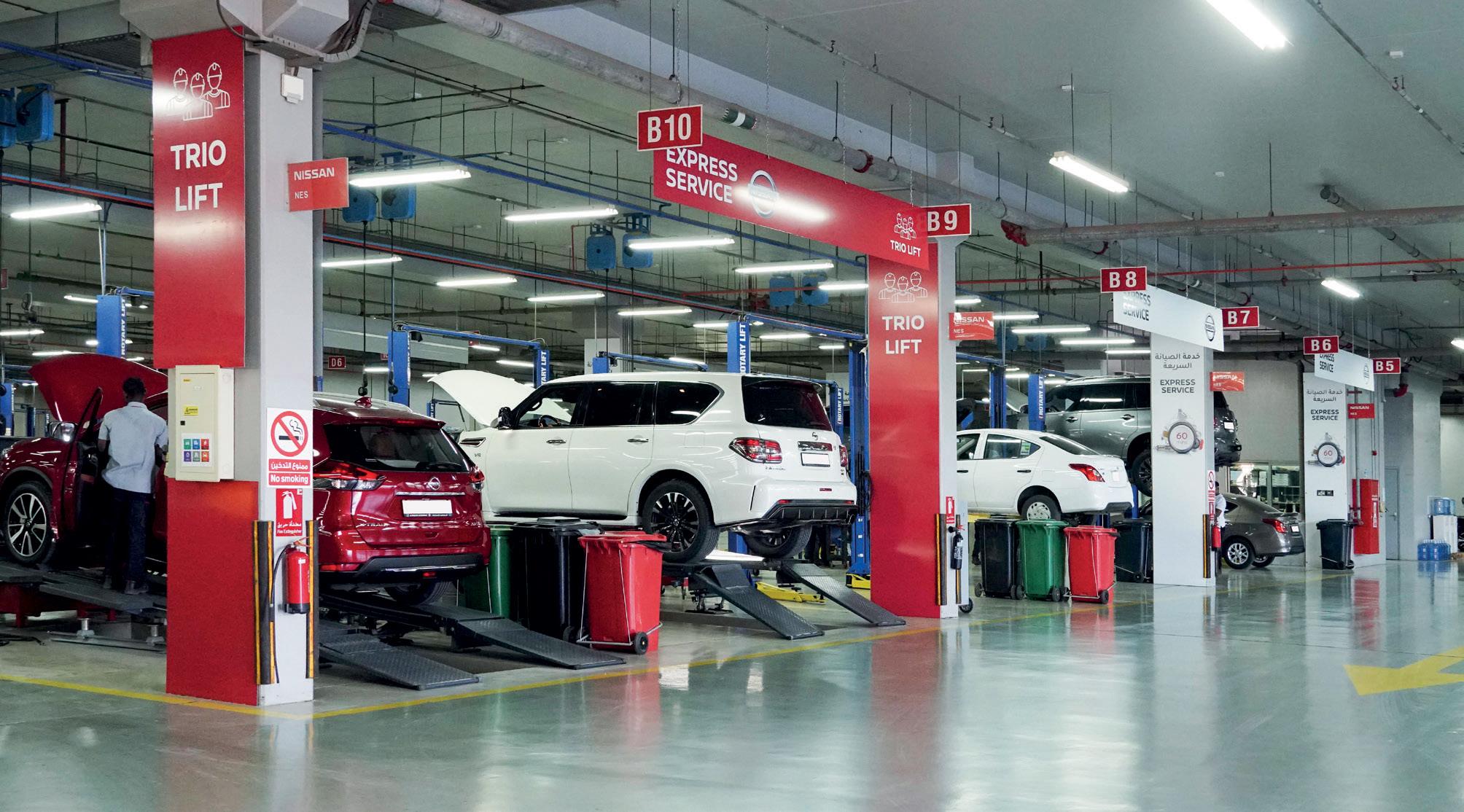
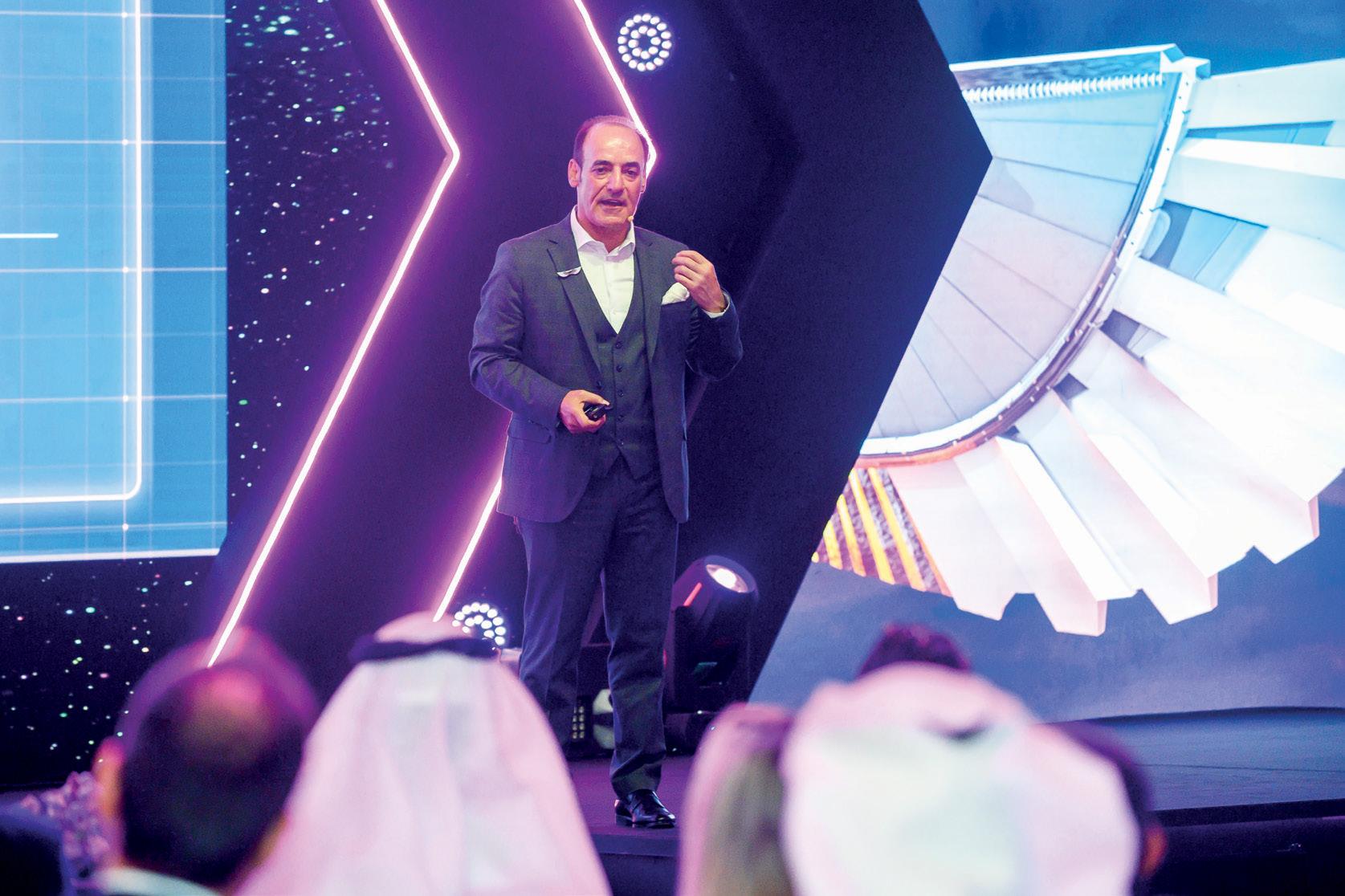
Digital and e-mobility trends can significantly impact fleets”
also opportunities, says Irfan Tansel.A SEAMLESS APPROACH Al Masaood Automobiles’ vision is for a customer-centric approach that creates a seamless offline and online customer journey.
preventing the spread of the virus during the recent pandemic. Those who can adapt and innovate in response to these challenges will be well-positioned for future success.
With rapid technological advancements being witnessed in modern-day vehicles, automakers and tech companies have begun forming partnerships to develop electric, connected and autonomous vehicles. To remain competitive in the face of challenging market conditions, fleet management companies must adopt cutting-edge technologies that improve company-wide visibility, management, and analysis of massive amounts of fleet management data. This includes implementing advanced analytics tools and integrating IoT sensors to optimise vehicle performance, reduce maintenance costs, and enhance driver safety. Additionally, leveraging cloud-based platforms can provide real-time insights and enable more efficient decision-making processes.
Further, environmentally friendly initiatives have been a major topic of discussion this year. In the near future, sustainability will become a major goal for fleet management companies, leaving many industries concerned about how to achieve their sustainability goals.
Despite the medium and heavy-duty truck fleet comprising less than 10% of the global on-road vehicle stock, large diesel truck engines and high average annual mileage account for approximately 40% of the global transport sector’s greenhouse gas emissions. This represents approximately 5.1% of all fossil fuel-derived CO2 emissions worldwide. This disproportionate contribution to emissions is the issue.
A recent IDTechEx report sheds light on the emerging zero-emission truck market, forecasting rapid growth for the global zero-emission truck market over the next decade at a CAGR of 37.1%. It expects the global medium and heavy-duty zero-emission truck market to be worth more than $200 billion annually by 2043.
Rapid decarbonisation of the trucking industry must be a top priority if the global community is to meet its goals to reduce greenhouse gas emissions and limit the effects of climate change. Consequently, the fossil fuel-powered internal combustion engine truck’s days are numbered.
In alignment with the sector’s transformation, Al Masaood Automobiles’ Falcon 2.0 strategy for the next five years is
based on three key pillars: Diversification, Customer Centricity, and Innovation. Diversification investigates new verticals, such as new retail formats, new product combinations, and new regional expansions. Our vision for customer centricity is to create a seamless offline and online customer journey. Through this strategy, we will ensure that we are constantly communicating with our customers, listening to them, and responding to their needs at all touchpoints. Under innovation, we will consider the implementation of novel concepts to develop new policies, procedures, and lean operations. Innovation will also encompass the redesign of existing business processes
OPERATING AT THE HIGHEST LEVELS

Al Masaood Automobiles has built a reputation for being able to provide large fleet after sales services for clients in the government and semi-government sectors.
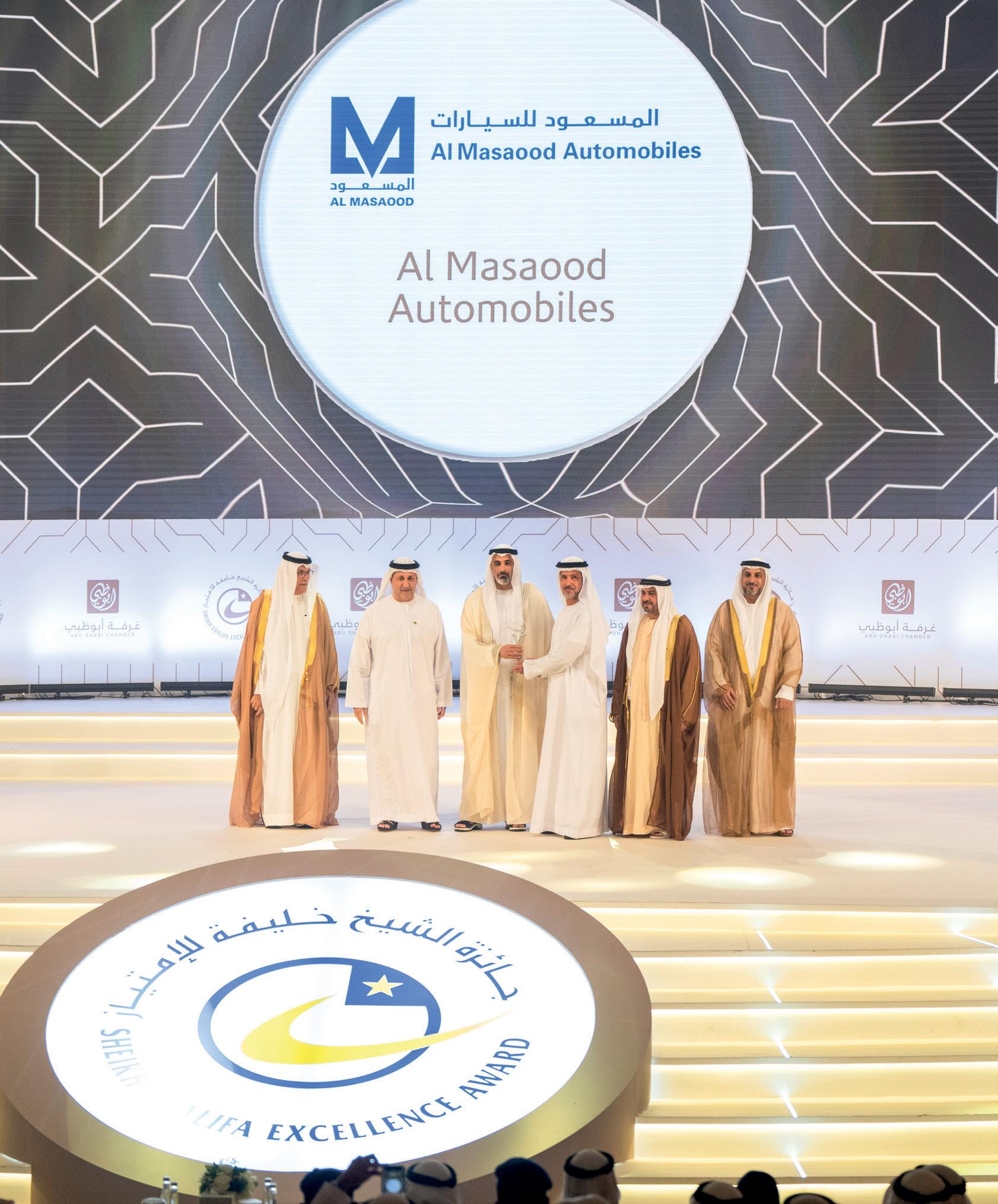

and the exploration of new avenues to implement time and cost savings.
A transportation company must keep its vehicles moving. Every mile travelled represents an opportunity to make money – if the fleet is managed properly. Effective fleet management can help transportation companies optimise their routes, reduce fuel consumption, and minimise vehicle downtime, ultimately leading to increased profitability. By utilising technology and data analysis, companies can make informed decisions that improve their operations and keep their vehicles on the road. An agile and easy-to-use fleet management system can help companies navigate the shifting landscapes of safety, efficiency, and opportunity.
Investments in electric and autonomous infrastructure are being driven primarily by fleet operators”

Our road networks and the greater transport industry have much to gain by adopting new technologies. Whether they’re applied inside or outside a vehicle, innovative solutions are making road transport more efficient and changing how we use roads.
A prominent example of this is the growing application of autonomous vehicles, with the city of Dubai collecting data and testing vehicles as part of promoting its smart mobility sector.
A key part of this digital transformation is how we use technology to improve road safety and the infrastructure that’s essential for the transport and logistics industries. Road safety is critical to any region, and in the UAE, conversations have centred around lowering speed limits on certain roads and officials calling for raised awareness in the face of difficult driving conditions.
This is where real-time monitoring can help. Real-time monitoring provides information about when and where vehicles are as well as details of what they are carrying. This information can be used to respond in real time to a range of situations. But simply sticking a camera to the dashboard of your vehicle isn’t enough anymore. Enterprises are encouraged to invest in innovative monitoring solutions that prioritise the safety of their vehicles, occupants, and cargo.
Continued investments in transport infrastructure mean that the UAE has one of the most modern transport systems in the world. Encompassing various modes of travel such as trams, buses, taxis, and private vehicles, this critical ecosystem is made up of multiple moving parts all working together to support economic growth and development. Meanwhile, roads are constructed and maintained according to international standards and the country’s environmental conditions, all in the name of efficiency and connectivity.
Safety is also a guiding concern. With initiatives such as the Integrated Transport Center’s (ITC) Vision Zero project, authorities are on a mission to create safe roads through their infrastructure, enhance road users’ responsibility and vehicle safety specifications, and develop a response system for road accidents. Technology will play a fundamental role in achieving goals such as these, and so we must consider what specific functions technology can fulfil.
Improving vehicle and overall road safety begins with having a direct and clear line of sight of the vehicle in question.
Onboard cameras are built and designed to take up as little space as possible.[1]
Their robust construction protects them from vibrations when the vehicle travels over rough terrain. Innovations in
camera lens technology and imageprocessing algorithms also mean cameras can adapt to challenging lighting conditions - even letting operators distinguish between signal light colours – and identify specific objects of interest regardless of those conditions. Combined with high levels of manoeuvrability, today’s cameras are built to be as versatile as possible and suitable for any vehicle, including buses and trucks.
New developments in IoT and network technology mean operators have more reliable visibility over their vehicles. Gone are the days of passive surveillance and onboard recording via hard disks. Instead, we can use real-time, GPS-enabled viewing equipped with edge-based video and audio analytics. By monitoring vehicles and occupants as they travel, operators can ensure
drivers adhere to directives, as well as react to unforeseen and emergency situations more quickly and efficiently.
The footage is available at operators’ fingertips thanks to cloud-based transmission and storage. It can be easily accessed for investigation and insurance purposes.
Advanced analytics can help operators extract and accumulate data about their vehicles and how they move. For example, they can monitor passenger numbers and commuting trends on public transport. They can then use this to optimise schedules and staff deployments, ensuring they provide an efficient and safe experience for large populations. Meanwhile, businesses can use data to keep track of a vehicle’s speeds and surrounding traffic conditions, thus letting them determine new routes and schedules that best fit their activities and operational requirements.
Embracing technology does not mean the solutions we deploy have to be complicated or overthought.
Real-time monitoring may not be a new concept, but it is one that’s ready for new ideas and empowers people to make better and more informed decisions. By upgrading and optimising our monitoring and surveillance capabilities with an eye towards data, enterprises in the UAE and the surrounding region can set new safety standards, save lives and protect assets and infrastructure.
NAZ Industries for almost 3 decades is a global leader in manufacturing of different range of truck mounted bodies, different types of semi-trailers and process vessels. We are specialized in design, manufacture and supply of our products using internationally recognized engineering software and advanced production machinery in the manufacturing Industry. Focusing on global standards requirement and International Road regulations has made NAZ a reputed and valuable brand in both local and international market. Since establishment NAZ designed, engineered, and manufactured over 100,000 products shipped to more than 28 countries worldwide. At NAZ, we believe in a philosophy that any further BUSINESS is an outcome of continued AFTER SALES SUPPORT
Address: NAZ Industries LLC, Jebel Ali Industrial

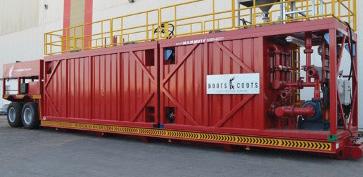
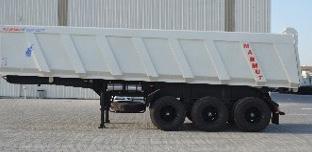

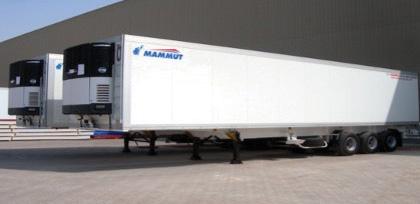
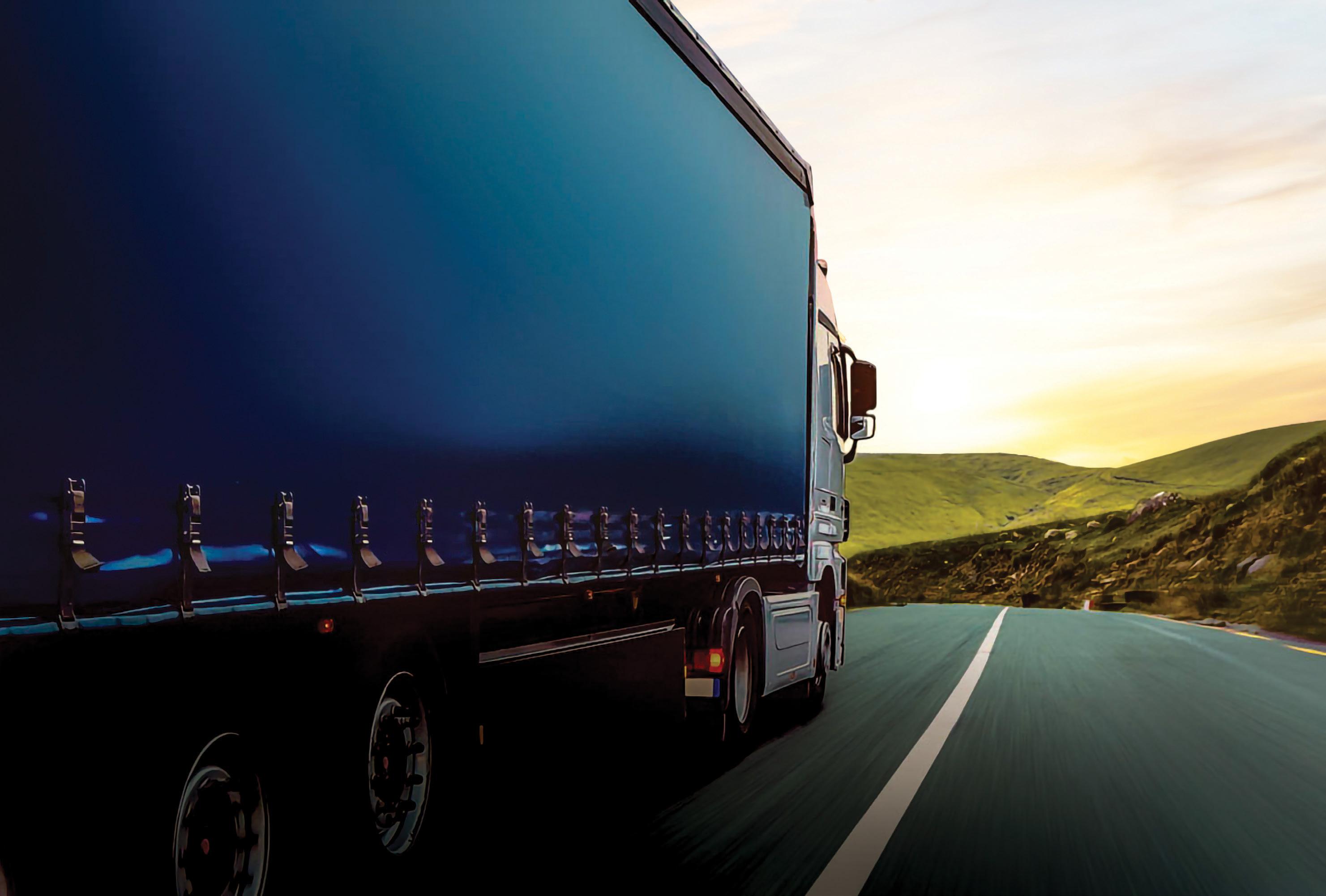
Area 1, Plot S01, Dubai, U.A.E
Tel: +971 48107777
Email: info@nazindustries.ae
Website: www.nazindustries.ae
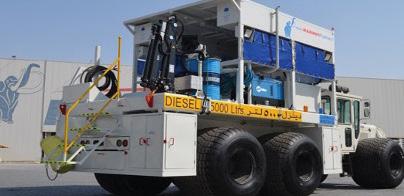


Social media:

Why is city traffic more challenging for truck drivers? Asks Anna Wrige Berling, Traffic & Product Safety Director, Volvo Trucks

Truck drivers face an increasing number of safety challenges on our busy urban roads. Why is this and how is truck safety in our growing cities being addressed?
There is no doubt that our cities are growing at an exponential rate. According to the UN, in 2018 55% of the world’s population lived in urban areas, a proportion that is expected to increase to 68% by 2050. In many cities, road infrastructure has not evolved at the same pace, causing increased congestion and difficult driving conditions for truck drivers and the increasingly diverse mix of road users all over the world.
Although little is currently known about the impact of electric scooters on traffic accidents, their recent proliferation has added another dimension to the rising number of pedestrians and cyclists on the road. There is also often a lack of awareness of truck blind spots among these types of vulnerable road users.

Smartphones can be a major distraction for all road users and compound the situation. According to the National Highway Traffic Safety Administration, distracted driving has become a significant cause of vehicle crashes in the US, with much of the distraction on the roads attributed to texting while driving. It is also common to see pedestrians – and even cyclists – moving around while listening to music or using their phone, with limited awareness of their surroundings. Studies show that almost one fifth (17%) of all pedestrians crossing a road fail to pay attention to the traffic because they are using their smartphone (Volvo Trucks 2017 Safety Report).
The rise in e-commerce presents other safety challenges for truck drivers. These include the need to meet faster delivery times and a lack of suitable parking to be able to complete deliveries safely in an increasing range of urban locations. An annual survey conducted by the American Transportation Research Institute highlights how the e-commerce boom has intensified the issue of urban truck parking.
“Truck drivers in cities today face tough driving conditions on a daily basis: tight deadlines in many cases to get the job done, challenging road infrastructure to manoeuvre their vehicle safely, and the need to remain alert to the many risks of collisions on our congested city
roads,” says Anna Wrige Berling, Traffic & Product Safety Director, Volvo Trucks.
With increased urbanisation and a more diverse mix of road users jostling for space, road safety has become high on the agenda for many city policy makers. The fact that young road users are particularly at risk – according to the World Health Organisation (WHO) the leading cause of deaths worldwide for 5-29 year olds is road traffic accidents – has also heightened the need for better urban road safety.
One of the biggest issues for truck drivers is visibility, particularly when it comes to vulnerable road users. In London, trucks are disproportionately involved in fatal collisions with this group. While trucks account for just four per cent of the overall miles driven in the capital, between 2015 and 2017, heavy goods vehicles were involved in 63 percent of fatal collisions involving cyclists and 25 per cent involving pedestrians (Transport for London). For this reason, London now has a Direct Vision Standard based on how much a driver can see directly through their cab windows. Trucks must meet the required standard in order to enter the city centre.

In Europe, the EU’s General Safety Regulation is also coming into force in 2024. Among other requirements, all trucks in Europe must have active safety technology to inform drivers if there is a vulnerable road user in the risk area at the front, side or rear of the vehicle. Direct vision standard requirements will follow in 2029. To meet the direct vision standard, the cab design, applicable to all markets, will change.
Furthermore, supplementary 360 degree camera systems – four cameras on each side of the truck to enable a complete view of the areas around the vehicle, are now cheaper and more accessible in low income nations. In higher income countries, they already have a place on many city trucks.
“Truck drivers in cities today face tough driving conditions: tight deadlines, challenging road infrastructure and the need to remain alert to the many risks of collisions on our congested city roads”
The EU’s long-term goal is to reach zero fatalities and serious injuries, known as ‘Vision Zero’, on European roads by 2050. The United Nations also has an ambitious target – to promote the reduction of global road traffic fatalities and injuries by 50% by 2030.
Matts-Åke Belin, WHO Global
Lead Decade of Action for Road Safety, says: “The outcome of truck accidents, because of their weight and size, is almost always severe. Truck safety is therefore an important part of this global target.”
WHO is also encouraging more walking and cycling to reduce environmental impact and increase health benefits. To do this, Belin says that safety has to become more integrated into how we design cities and organise mobility.
“In the past, safety was an ‘add-on’ requirement and accidents were usually attributed to human error. Now we are understanding that we have to plan for human error and take a more systemic approach to road safety. Part of this is to have a safety mindset when we design roads and use the innovative technology available to us to support truck drivers and other road users.

Today, seatbelts, automated transmissions and, more recently, automated emergency braking, lane keeping support and collision avoidance technology, as well as blind
1. Always assume VRUs are unaware of truck blind spots
Truck safety research involving VRUs has shown that pedestrians, cyclists and moped riders are simply not aware of the difficulties drivers face when trying to perceive everything around the truck in busy cities. Furthermore, most VRUs do not know how a truck with a longer trailer will behave when turning in a traffic environment. For these reasons, never assume VRUs will avoid risk areas and blind spots.
2. Be aware of common accident situations involving VRUs
It’s important to prepare for unpredictable and risky VRU behaviour. There are three situations that stand out and they are most common in urban areas: Trucks turning right in right-hand traffic and left in left-hand traffic and colliding with VRUs, especially cyclists.
3. Anticipate the road ahead
Think about how you approach
spot cameras, enable a safer urban truck driving experience. The situation has improved – over the past few decades, statistics in the US and EU show that fatal accidents involving heavy vehicles have significantly decreased, despite the fact that the total number of trucks has increased.
Very soon drivers can also expect the next step – legislation that ensures the latest advances in truck active safety systems are enforced.
“It is very clear that truck driving in our cities has become increasingly challenging when it comes to safety. But with Vision Zero at the top of the agenda, truck drivers will start to see more comprehensive, mandatory safety support, not only via improved direct and indirect visibility, but also via intelligent warning systems that alert the driver if there is a collision risk. However, road safety is not just about legislation. It is about a collaborative mindset where authorities, road users and industry players must work together to reduce traffic fatalities and move towards zero,” says Berling.

About 1.35 million road users are killed worldwide every year. More than
intersections and decide how to make your turn in the safest way possible. Stay alert and physically move to look and see better. Adapt your speed in busy urban areas – it is unlikely to impact on your delivery times.
4. Prepare for safer driving in cities
Allow time to adjust your seat and mirrors. Ensure that the mirrors and windows are clean, don’t obscure your
view with monitors and personal items. Check all the truck’s safety systems, including cameras, are working and switched on before you start driving.
5. Remember - you are the number one safety system
Your truck’s safety systems and cameras are a valuable form of driver support. But a driver that actively assesses the road conditions and hazards is still the most important safety system in the truck.
half of them are vulnerable road users (pedestrians, cyclists, moped and motorbike riders). When this type of accident involves a heavy truck, it is likely to have very serious consequences. Although the reasons for these accidents are complex and varied, a truck driver’s actions in traffic can help to save lives.
Almost a third of fatalities in heavy truck accidents in the EU are pedestrians, cyclists, moped and motorbike riders. Traffic accidents involving vulnerable road users (VRUs) and heavy trucks are an emotive and challenging area to address.
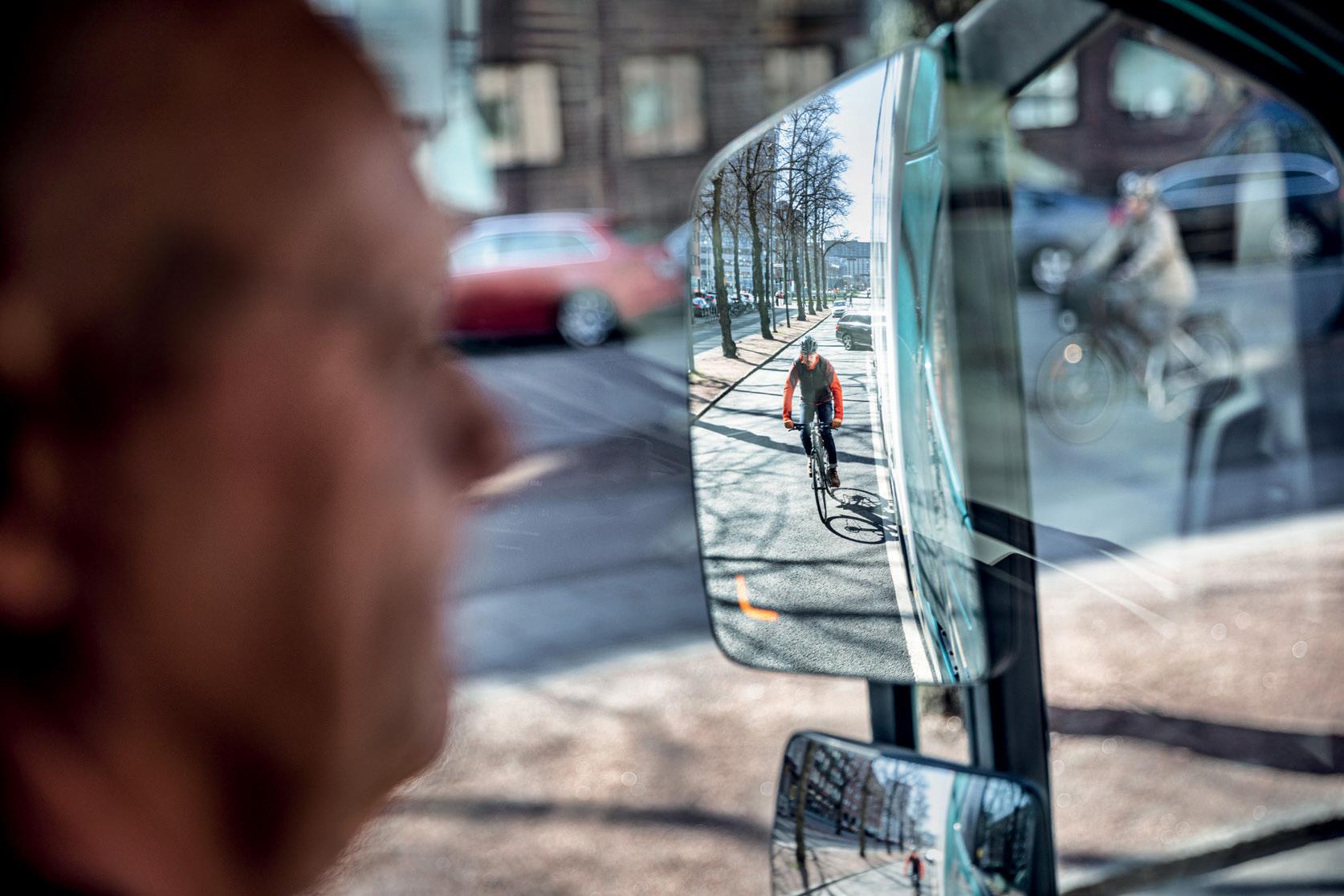
“By understanding how and why these specific types of traffic accidents occur, traffic safety improvements can be identified and injuries reduced,” says Anna Theander, leader of Volvo Trucks Accident Research Team.
Volvo safety research shows that to reduce the number of accidents, improvements in truck active safety systems, better road infrastructure and raised risk awareness among VRU’s are some of the most critical elements. The human factor, applicable to all road users, is an important consideration. How a driver anticipates and reacts to situations involving VRUs, especially in busy urban areas, can have a large effect on the risk of this type of accident.
“To this day, the driver is still the number one safety system in the truck. A welltrained, attentive driver who understands the risks will make a difference,” says Berling.
Big changes are coming in the near future. The EU’s updated General Safety Regulations, for instance, will require more mandatory active safety systems on all new trucks from July 2024. The systems will address truck blind spots at the front, side and rear, and warn the driver when a VRU enters a risk area. From January 2029, truck manufacturers will also be required to provide better direct vision for drivers.
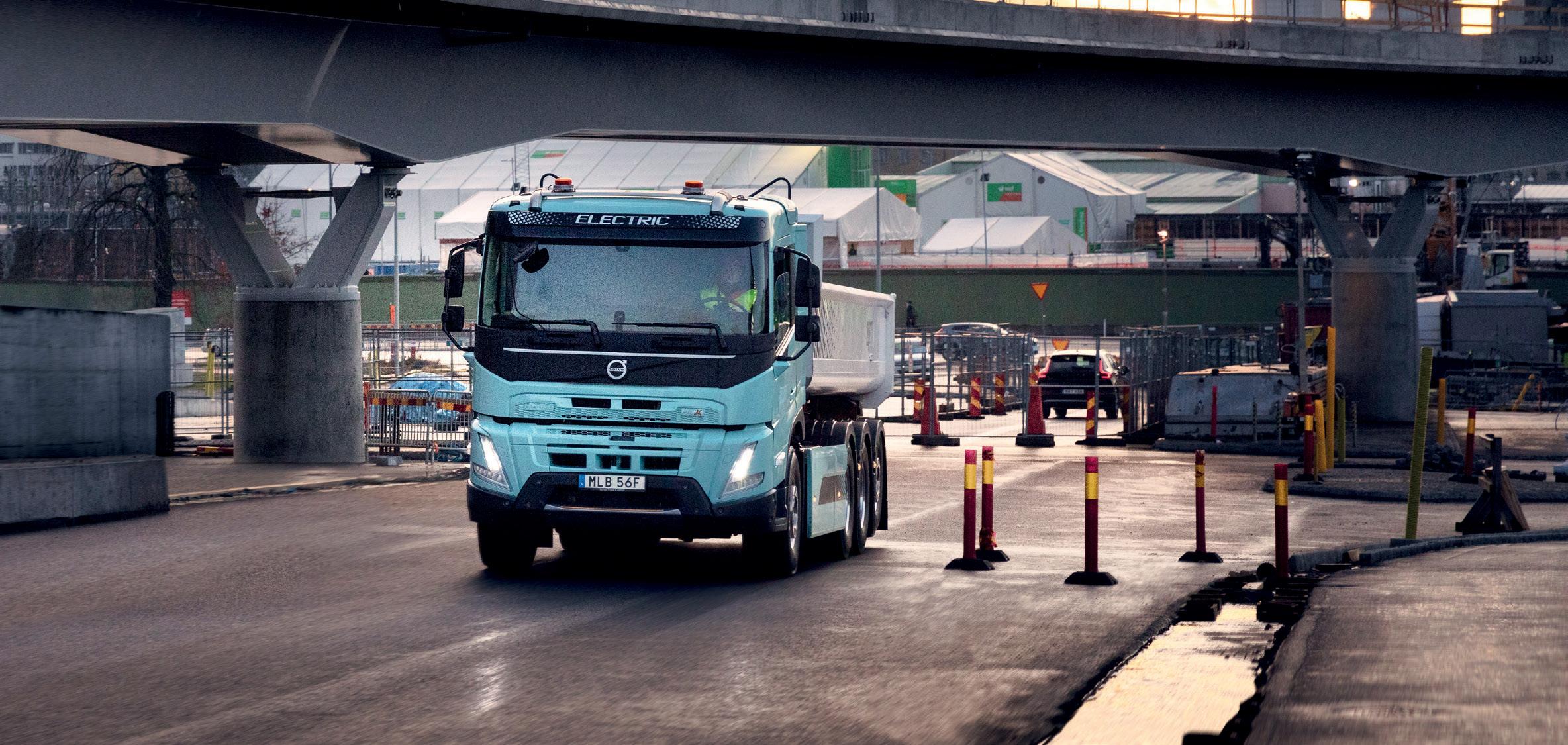
In addition, the legislation for advanced emergency brake systems is being revised
to also include automatic braking when pedestrians cross the road and enter the risk area. Broader initiatives are also progressing, such as road infrastructure improvements, industry collaborations and more in-depth traffic safety research that considers the complex causes of VRU accidents.
“Overall, the outlook is positive –and with the help of safety aware drivers, together we will reduce fatalities and serious injuries caused by this type of accident,” concludes Berling.
Rraffic
vulnerable road users and heavy trucks are an emotive and challenging area to address. Education and infrastructure is a must, as well as more advanced truck technology.
One of the biggest issues for truck drivers is visibility”
With increased urbanisation and a more diverse mix of road users jostling for space, road safety has become high on the agenda for many city policy makers.SHARING THE ROAD accidents involving
The UAE-based healthy meal planning service raises the bar in fresh meal delivery with Yango Delivery
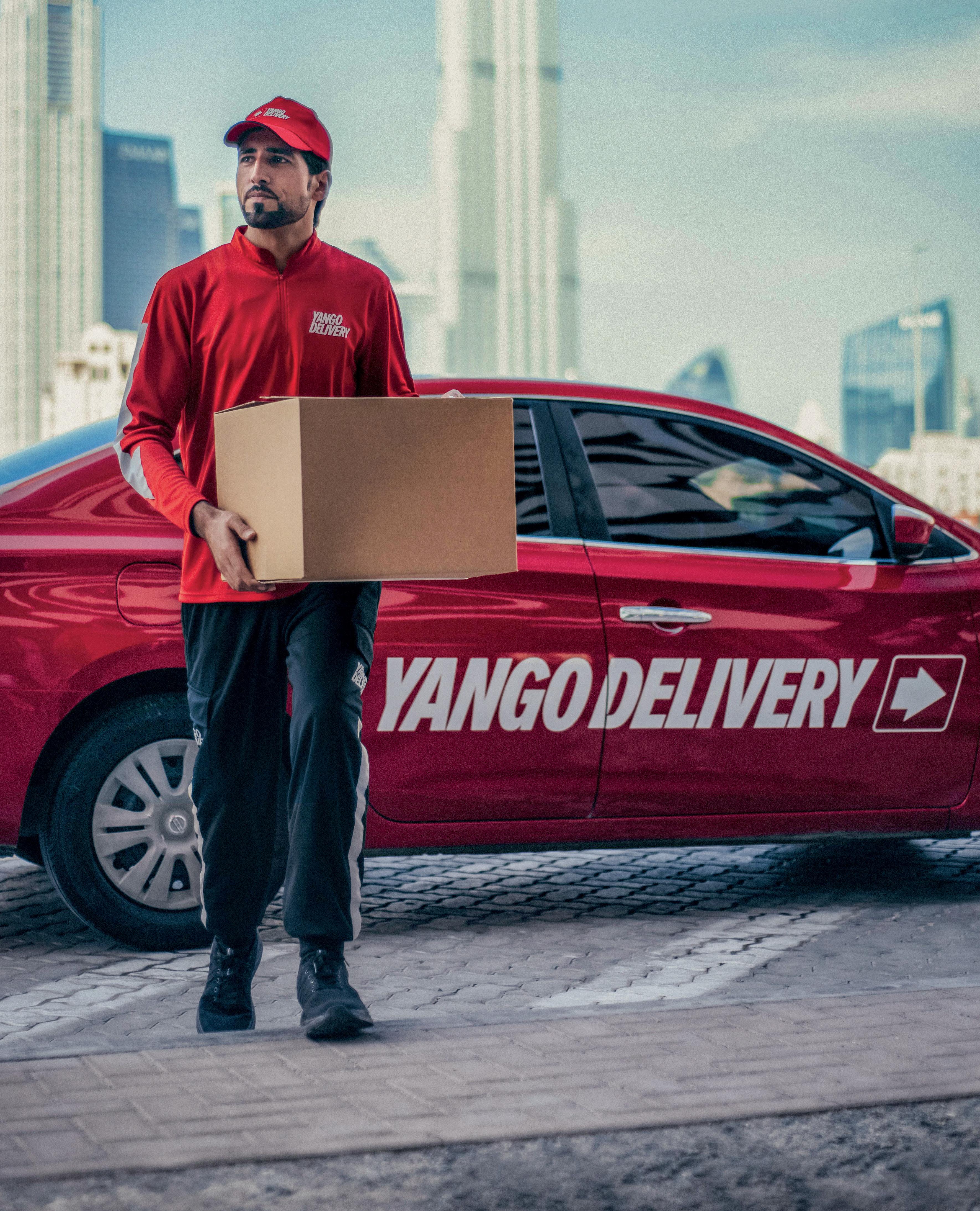
Fitbar is one of the leading healthy meal planning services in the UAE and has been growing its customer base at a steady pace, and expanding its operations across the Emirates. As it grew, it became evident that simply relying on its in-house team for planning and managing all deliveries was not feasible — the resource requirements were simply too demanding, and the manual nature of operations left potential for issues to frequently arise.
To maintain its unwavering commitment to its clientele, Fitbar turned to Yango Delivery for a technology-driven last mile logistics solution. Increased delivery success rates have translated to enhanced customer satisfaction and better retention, while a host of new technology-powered features pave the way for new and innovative customer experiences, conveniences and cost savings, to be unlocked.
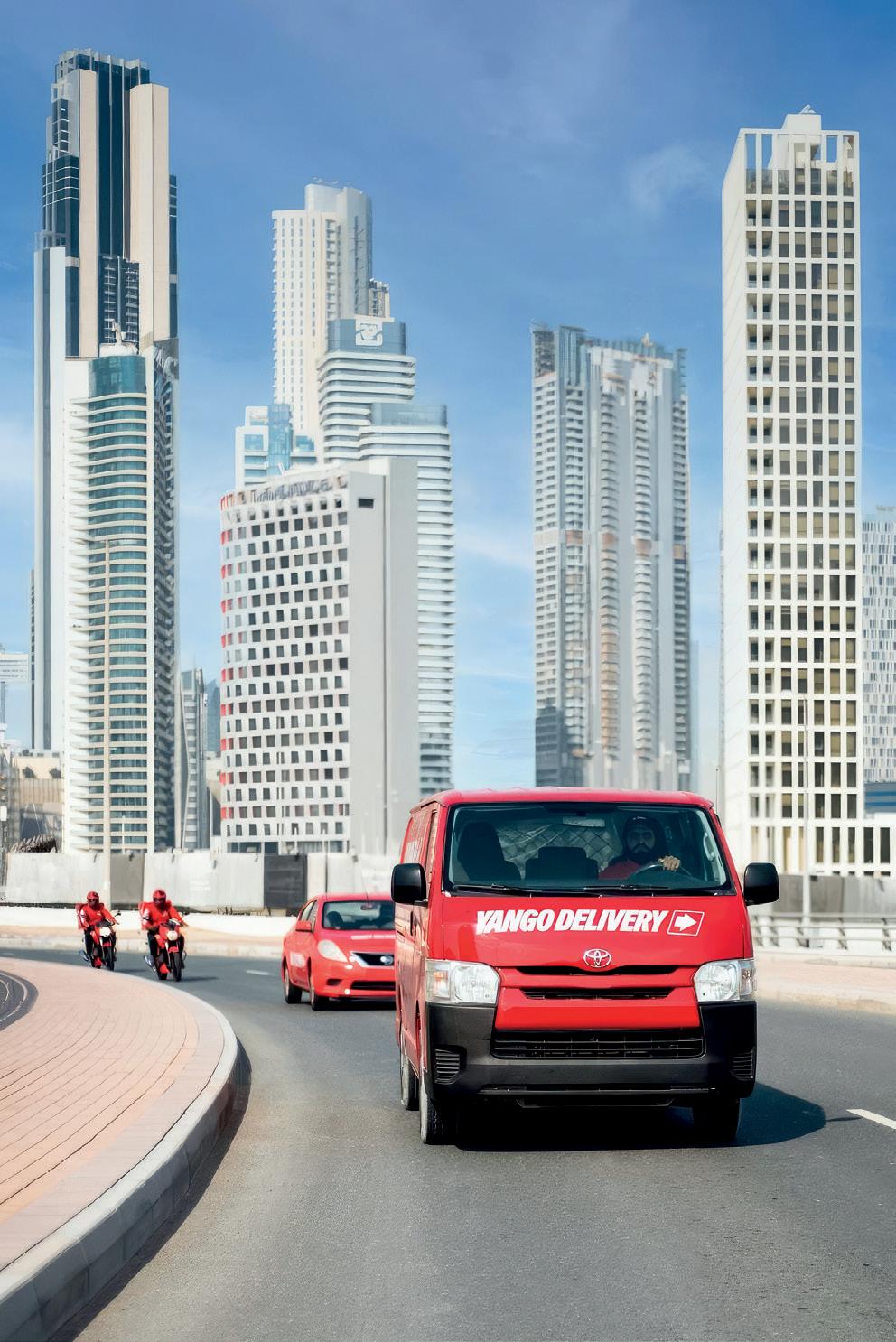
‘Eat good, Feel good, Look good’ — this is the tagline that welcomes users to the homepage of UAE-based curated meal plan provider, Fitbar. And while today, healthy meals are readily available to the country’s calorie-conscious consumers, the company’s unwavering focus on maximising taste and affordability, place it in a league of its own. There’s little surprise therefore that in just six years, it has grown to become a market leader in the space, with a constantly expanding customer base, and operations across all Emirates.
While Fitbar’s strengths lie in the taste, affordability, and healthiness of its meals, consistent, timely delivery also plays an outsized role in customer satisfaction.
“Our customers tend to have very specific dietary requirements based on their health and fitness goals and our service is finely tuned to empowering them to achieve these,” says Bothaina Yasser, business development manager & co-founder at Fitbar. “Customers can’t benefit from meals they don’t receive. So last mile logistics is an inherently critical aspect of our industry.”
Recognising this, Fitbar has prioritised delivery since its inception and while it worked with third-party logistics providers to make the actual deliveries, the company had two dedicated internal resources for the management of these partners. But as business grew, lack of innovation from delivery partners put an increasing strain on these personnel.
“Planning routes, setting delivery schedules, communicating with drivers, accommodating special delivery requests by customers — we had to do it all ourselves, manually,” explains
Ahmed Yasser, co-founder and CEO at Fitbar.
This had a direct impact on Fitbar’s ability to scale at a pace that matched its ambition and the growing popularity of its service.
“We never compromise on customer satisfaction, so we knew if we were to expand, we needed a better delivery solution,” says Ahmed.
Fitbar knew that without a technologyoriented approach, adding more resources would offer little more than a temporary fix. “There’s a limit to the scale that can be effectively reached with a manual approach — as delivery volume increases, complexity scales exponentially,” says Ahmed. So when Yango Delivery approached Fitbar with a last mile logistics solution, based on a proven technology platform, the choice was clear.
This platform has served to address all the challenges that Fitbar faced with previous partners. Once Fitbar provides Yango Delivery with a list of all orders that need to be delivered, optimised schedules and routes are automatically generated, based on Yango Delivery’s proprietary algorithm that takes into account factors such as delivery location, potential routes, as well as live traffic conditions.
“We are deeply committed to running our operations in the most sustainable manner
possible, and we take pride in knowing that Yango Delivery helps us minimise the effective fuel consumption of our fleet,” says Bothaina.
With Yango Delivery, riders can be tracked in real-time. They can conveniently record proof of delivery by clicking a picture that is automatically uploaded to the platform. And communication between Fitbar’s customer service agents and riders too has been streamlined.
“This has elevated our customer experience to the next level. We’re able to confidently update our clients with the ETA for their delivery. And if they have any special requests, then communicating these to our drivers, and making the necessary updates to their schedule and route is greatly simplified,” says Ahmed. “As a result, we now only have one internal resource working with Yango Delivery to manage all the delivery operations.”
Yango Delivery’s world-class technology is matched by its commitment to customer service. “They were one of the only providers who were willing to offer same day pick-up, and delivery within our long-standing 5pm to 10pm time slot. We didn’t have to make unwanted changes to our business model,” says Bothaina. “In fact, with their support, we have increased the frequency of deliveries from three times per week to daily — which today is something that customers in the region expect.”
On a daily basis, Fitbar provides customised, healthy meals to nearly 400 clients. “Yango Delivery has enabled us to deliver these meals with a 95% success rate and as our partnership grows, we are on track to achieve a near-100% success rate very soon,” says Bothaina. “We also have plans to launch our mobile app, and Yango Delivery enables us to add a real-time tracking feature for a premium customer experience.”
Commenting on the value that the support of a trusted delivery partner brings to the business, Ahmed says, “Our expertise lies in creating customised, flavourful, and healthy meal plans for our clients. By alleviating the burden of managing logistics, Yango Delivery has enabled us to focus on our core business, freeing up our time to develop growth strategies, engage with investors and stakeholders, streamline our internal operations, and build impactful marketing campaigns.”
“They are a partner that is clearly committed to our success. The technology is there. The service commitment is there,” says Ahmed. “Thanks to Yango Delivery, our ability to retain customers has been enhanced and this has a direct impact on our bottom line.”
Customers can’t benefit from meals they don’t receive. So last mile logistics is an inherently critical aspect of our industry”
Juffali Commericial Vehicles (JCV) and KONVEKTA have formed a new partnership in Saudi Arabia to help professional drivers stay comfortable even in the heay of summer. With temperatures in some parts of Saudi Arabia expected to once again near 50OC over the next few months, finding ways to keep cool are essential. However, Alexandru Cretu, National Service Director, Juffali Commercial Vehicles (JCV) tells T&FME that there is a growing awareness among Saudi fleets that the traditional method of simply keeping the engine running is neither efficient, economic or as desirable as it once was. This led to JCV reaching out to the market for new ways to
keep drivers comfortable even in the most extreme conditions – and it found the answer with a European firm at the leading edge of air conditioning (AC) technology KONVEKTA.
The firm’s recently formalised partnership with the German manufacturer offers a fresh and efficient approach to tackling driving in the heat. Cretu explains that the event expands and improves on what is already provided in the market.
“This will be the newest edition to our extensive collection of products we offer in our commercial vehicle sector,” he adds.
The Schwalmstadt-based specialist in mobile air-conditioning develops and produces its own AC systems for a wide range of buses, electric vehicles, rail vehicles and
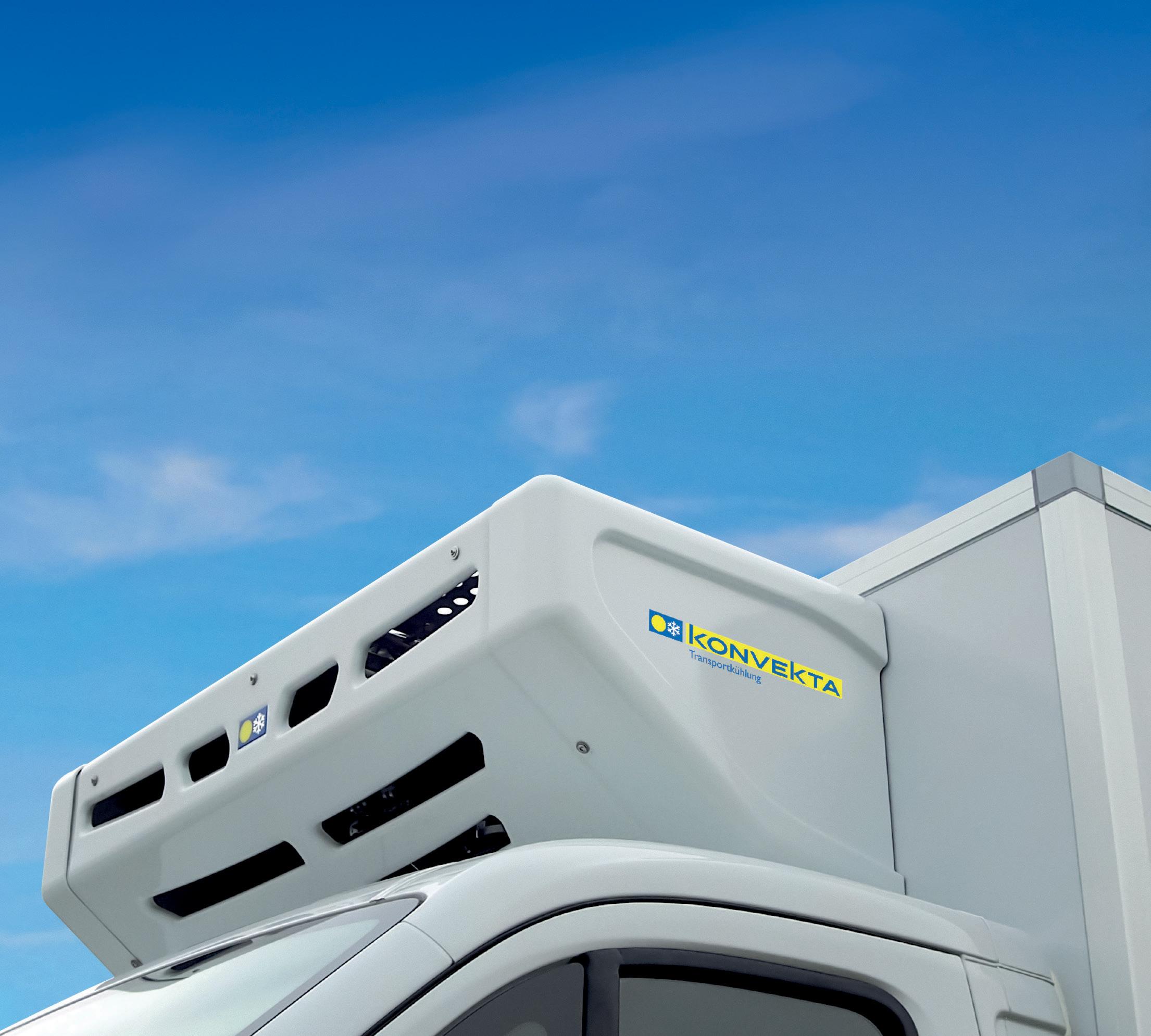
cooling systems for tempered transports as well as construction and agricultural machinery.
Like JCV, they are determined to actively work towards a better future by providing customers with sustainable technology, as well as providing environmentally friendly units to help play their part in creating a better future.
KONVEKTA climate solutions represent the best in the development of technological competence which has been demonstrated in hundreds of projects for major transport and manufacturing companies. With its range, spanning from coaches, mini or midi buses, articulated, urban, interurban, hybrid or electric buses, KONVEKTA has consistently delivered high quality work whilst ensuring your vehicle with low life-cycle costs, as well
Juffali Commercial Vehicles (JCV) and KONVEKTA talk about joining in forces to offer fleets a fresh approach to keeping drivers cool
AC units are essential in keeping the wheels turning”
as ongoing trust and reliability, says Cretu. It is also a true innovator within the highly specialised field of vehicle AC. The company has developed the very first vehicle air conditioning system that operates as a heat pump with the environmentally friendly refrigerant CO2 (R744). Effectively operating separately from the main vehicle engine, the Konvekta CO2 pump systems have been available on the market successfully as a series product since 2018. Already in use across Europe in countries such as Sweden, the UK and Italy, CO2 heating and AC systems from KONVEKTA arrive in Saudi Arabia having proven their efficiency and economy over millions of kilometres.
“As a business we always aim to provide the best possible products for the market we operate in. As it turns out the market, we operate in can get quite hot!” Says Cretu. “Which is why AC units are so essential in keeping the wheels turning. For the cabin to stay cool many vehicle operators choose to keep the engine running.
“KONVEKTA runs on a separate engine which allows the cabin to stay cool, whilst retaining engine longevity, reducing fuel wastage, and subsequently enhancing quality of life for drivers, therefore reducing greenhouse gas emissions,” he explains. “Not only does this lower the cost for owners, but it also aligns with the Saudi vision 2030, as well as our own, to reduce greenhouse gas emissions and work toward a better and more sustainable future.”
With the partnership heating up, a spokesperson for KONVEKTA tells T&FME that it is extremely excited with this new partnership, “considering JIPCO’s outstanding reputation in the kingdom and excellent facilities we believe this relationship will excel.”
Heiko Schulze, CEO, JCV adds: “We are delighted to announce our partnership with KONVEKTA. Together we can help each other achieve greater heights and provide a better experience for customers in Saudi Arabia. Additionally, JCV and KONVEKTA share the same aim in developing a more sustainable future.

“Similar to Mercedes-Benz, KONVEKTA also follows in the trend of high-level German engineering with the commitment to bring the best possible product to the customers. Which
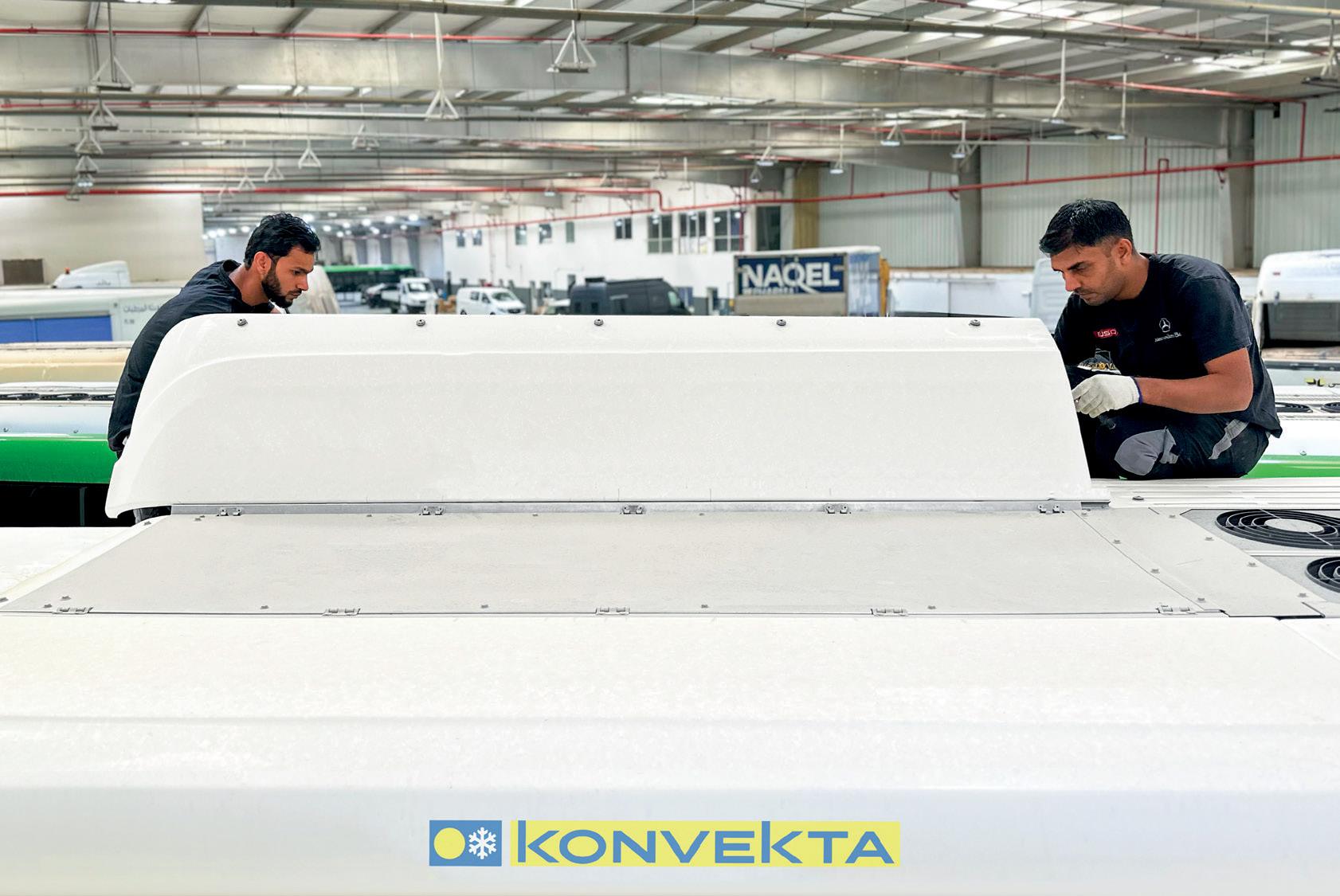
is why they align so perfectly with our brand. With this partnership we intend to create value for our customers by creating a one-stop-shop experience, where they can get the best of trucks and buses, and now the best in AC with us.”
AC systems in city buses and coaches generally require little care, but they do still need regular maintenance. All AC systems leak refrigerant every year, for instance, and if they are not checked regularly, the performance of the system decreases significantly. With the potential for the build-up of bacteria, mould and viruses in the systems, thorough filter cleaning and servicing is a priority and should be part of routine maintenance. Cretu says that JCV will be stand ready to help fleets using KONVEKTA systems across the Kingdom, even when temperatures are at their peaks.
“Customer Service care is very important to us as a brand, being an experienced distribution partner, with our own service network allows us to act as a reputable service partner for KONVEKTA. This enables an opportunity for JCV to aid customers with any KONVEKTA systems repair necessary. This will be available for MCV buses, and all other brands sold by JCV. As a brand we’re super excited to welcome them as the newest, among a wide range of products related to commercial vehicles with JCV.”
He concludes: “We pride ourselves on our customer network and our ability to reach out to clients and we can’t wait to get in touch with them and tell them about this exciting new opportunity.”
“As a business we always aim to provide the best possible products for the market we operate in,” says JCV’s National Service Director Alexandru Cretu.
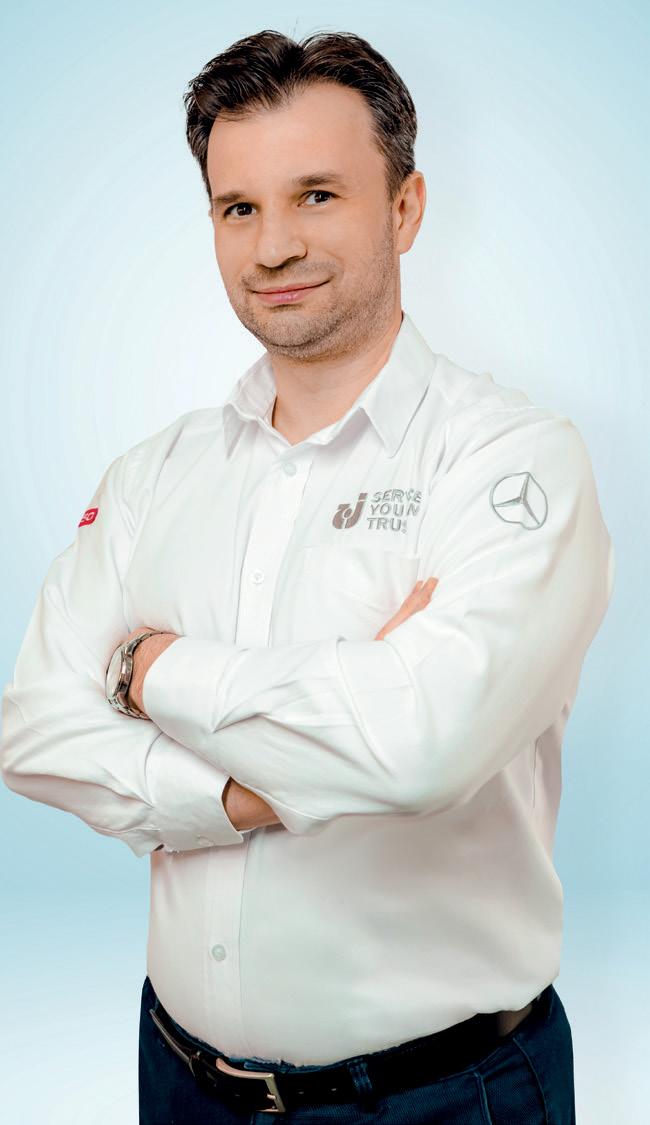
We always aim to provide the best possible products for the market we operate in”A BETTER EXPERIENCE JCV CEO Heiko Schulze says the partnership with KONVEKTA combines German engineering expertise with a superior customer experience.



The BMW Group says it has once again seen the sales of its electric cars double in the first quarter of 2023.
Posting a significant growth in its global sales of fully-electric vehicles of 83%, the German company delivered a total of 64,647 fully-electric BMW and MINI vehicles to customers in the first three months of the year. The BMW brand alone was able to more than double its sales of fully-electric vehicles in the first quarter, with 55,979 units delivered to customers, an increase of 112%.
The BMW Group delivered a total of 588,138 BMW, MINI and Rolls-Royce vehicles to customers worldwide in the first quarter of this year, which despite the strength in EV sales represents a fall of -1.5%. The company cited the aftereffects of China’s receding coronavirus wave and its impact on the economic environment as impacting the results, and “are still clearly being felt across all industries”.
BMW expects slight growth in deliveries to customers worldwide in the Automotive Segment in 2023 overall, but sees positive momentum at the top end of the market – where the company is planning for growth in the mid-double-digit percentage range.
“Our strong product lineup continues to inspire our customers worldwide. Our fully-electric vehicles, in particular, are benefiting from high demand around the globe. We were therefore able to maintain the dynamic pace of our electromobility ramp-up in the first quarter,” said Pieter Nota, member of the Board of Management of BMW AG, responsible for Customer, Brands, Sales.
“The main growth drivers in 2023 will be fully-electric vehicles and models from the high-end premium segment – like the new BMW i7, the new BMW 7 Series, the BMW XM and the updated BMW X7.”
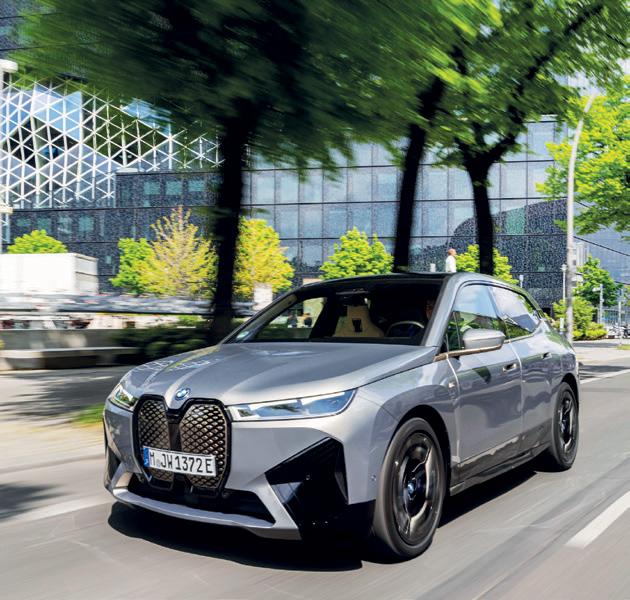
Cummins used the ConExpo show to playing a major role in the hydrogen economy as part of its Destination Zero initiative and the launch of Accelera by Cummins, a new brand representing a quickening pace of bringing zero-emissions solutions to market.
“Cummins has developed leading power solutions for over a hundred years, and we continue to demonstrate our leadership in developing a broad range of sustainable drivetrains looking to the future – with hydrogen playing a key role,” said Antonio Leitao, Cummins VP Off-Highway Engine Business. “Our strategy is to focus on the complete hydrogen value chain to drive sustainability and enable faster adoption.”
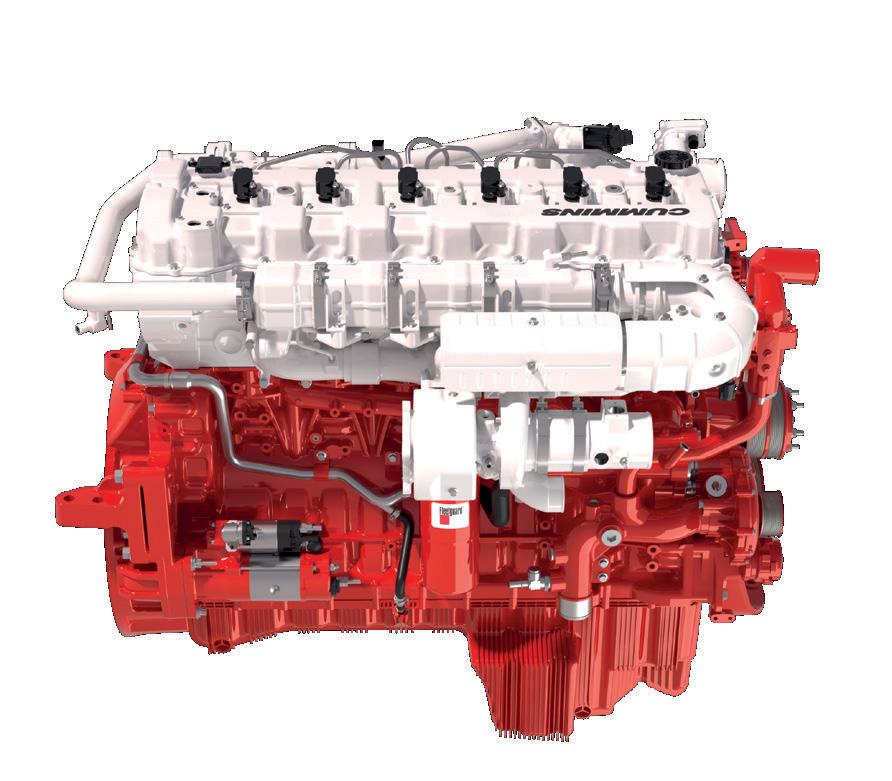
As a result of acquisitions and investment, Cummins is focusing on three key areas for hydrogen:
management and transportation of hydrogen, and the application of hydrogen in engines and fuel cells.
“Accelera is committed to raising awareness of the flexibility and dependability of hydrogen and fuel cell engines,” said Alison Trueblood, General Manager of Fuel Cell and Hydrogen Technologies for Accelera.
“We are building long-lasting partnerships with our customers based on the shared knowledge that the best power solutions of
the future are zero-emissions.” Green hydrogen is produced using electrolysis to turn sustainable power (wind, solar, hydro) into hydrogen with zero carbon dioxide emissions. The key tool to do this is an electrolyzer.
Accelera is establishing new electrolyser plants in La Mancha, Spain and Minnesota, USA as well as expanding production at Oevel, Belgium and Mississauga, Canada. With over 600 electrolyzers deployed globally in 100 countries Accelera’s investment is growing in this technology.
One of the latest projects includes providing a 35MW proton exchange membrane (PEM) electrolyser system for Linde’s new hydrogen production plant in Niagara Falls, New York. Once commissioned, Accelera’s electrolyser system will power Linde’s largest green hydrogen plant in the US.
TYRES



Continental and Emirates Red Crescent (ERC) have hosted a special day out for underprivileged children in Dubai in the spirit of Ramadan, with support from The Green Planet.

Continental invited 20 children, aged between 8 and 15, along with staff from ERC, to The Green Planet for a specially curated experience, which included a guided tour of the
rainforest environment, bird and fish feeding, as well as the option of an up-close encounter with animals such as lizards and snakes.
Continental also invited two family-focused content creators, along with their children, to join the experience. Finally, the afternoon concluded with an iftar at The Terrace; a rainforest-themed restaurant located within The Green Planet.
This activation is the continuation of a close and fruitful partnership between the tyre manufacturer and ERC that begun with the AFC Asian Cup 2019 UAE, said the firm in a statement.
According to Continental, The Green Planet was a great choice to provide an enriching and enjoyable experience for children and to expose them to key sustainability and important conservation messages. They also got to see and interact with animals, birds and plants that they might have only read about.
“We are always pleased to partner with ERC, the pioneering charity organisation, for this special Ramadan initiative,” said , Managing Director, Continental Middle East.
“We are proud to collaborate with The Green Planet to provide these children with a truly unforgettable and positive experience, while also shaping their awareness around the environment and sustainability.”
From Bluetooth and sat-nav to smartphone-like apps for your radio display, drivers can enjoy a wide range of handy features. And as the wheels of innovation keep turning, the road ahead for in-built car tools seems very bright.
In recent years, manufacturers have added several features to their models to make them more appealing. Long gone are the days of conventional keys, for example – it now only takes a tap on a fob or smartphone to lock (or unlock) your car.
But what are the most sought-after innovations in a vehicle? cinch, leading expert in online car trading, has revealed the
most-wanted car features of 2023 based on filtered searches made by vehicle buyers on its website are Android Auto and Apple CarPlay.
Searches for cars with the smartphonemirroring tech were, respectively, 61% and 49% higher on cinch in January 2023 than in August 2022.
Sam Sheehan, motoring and lifestyle editor at cinch, said: “Car technology has advanced at an incredible rate in recent years, and nowhere has that been clearer in the use of high-tech digital interior technology, which is reflected in the searches made by our customers.
“Most cars these days feature some kind of infotainment system but it’s the

growing integration of artificial intelligence in these that will positively transform the experience of driving – or riding – in the cars of the not-so-distant future.”
Here, Sam has taken a closer look at the in-car tech that drivers crave and reveal some of the innovations we will see in the coming years.
Texting, taking pictures or scrolling through your favourite playlist while at the wheel is illegal. Even picking up your phone can get lead to hefty fines and penalties.
More importantly, it can put your safety and other road users’ wellbeing at risk.
The growing integration of AI will positively transform the experience of driving”
With Apple CarPlay and Google’s Android Auto, you can control music streamed from your smartphone and send audio messages without looking at your screen, while your phone’s in-built audio assistance will intelligently announce incoming messages and read them out for you through the car’s entertainment system. It even works for WhatsApp messages.



Parking sensors
Finding parking spaces is becoming increasingly challenging. Well, parking sensors can make that test a little easier!
This handy feature can help ease the task of fitting your vehicle in narrow gaps while reducing blind spots around your car, keeping you away from objects or other parked vehicles.
Finding somewhere to drop off your vehicle can also trigger what is known as ‘car park anxiety’. This is a feeling of tension and claustrophobia that emerges when anticipating a situation where you might struggle to properly park your vehicle.
Parking sensors can help ease the stress, which is why people choose cars like an Audi A1. Thanks to these handy in-built sensors, and even more so with parking cameras, you can become a more confident driver.
Heated seats
Jumping behind the wheel on a cold morning isn’t a pleasant experience. But to beat the chill, more drivers are searching for cars with heated seats.
The most obvious benefit is that they provide immediate warmth to keep away the chills.
What’s more, this handy feature can help with lower back pain, as heat is known to relax the muscles and boost blood circulation.
For drivers that clock up the miles and spend hours in their car every day, heated seats are essential.

New features: What’s in the pipeline?
Car technology has progressed massively in recent years and shows no sign of slowing. In the not-so-distant future, we can expect to see a wide variety of new, in-built car tools that will further transform the driving experience.
Sam added: “The growing integration of artificial intelligence (AI) in vehicles means that soon, motorists will be able to control cars with a simple verbal request.
“For example, a driver could
ask a semi-autonomous car to assist with steering and take control of the acceleration and braking on a motorway.
“They could even ask it to soften the adjustable suspension so the baby in the back can fall to sleep more comfortably.
“Or, with the help of a phone app, a user could verbally summon their car to collect them from the entrance of the car park it’s located in.”
As for electric vehicles, future features could change the way we charge them. Currently, EV drivers need to plug their cars into chargers and wait for their batteries to refill before buckling up again. However, thanks to an in-built wireless
connection, electric cars could soon get power from electrified roads. This means that as you drive, your car will recharge at the same time, saving you both time and money.
The technology is already in development and has been successfully trialled in Sweden, so the idea of a future in which EVs don’t need to rely on static chargers is certainly not far-fetched. Cars were invented to transport people and objects from one place to the other. However, as well as chauffeuring passengers to their coveted destination, modern vehicles are designed to do so in a safe, easy and comfortable fashion – aided by the huge technological advances of the past two decades.
has advanced at an incredible rate in recent years”STEERING YOUR DECISION According to Sam Sheehan, motoring and lifestyle editor at cinch, what motorists are ready to pay for a coupé, convertible or hybrid estate car depends on a variety of factors, including how long you expect to be behind the wheel. With Apple CarPlay and Google’s Android Auto, you can control music streamed from your smartphone and send audio messages without looking at your screen.
The aftermarket for automotive parts and services is undergoing rapid change as big brand manufacturers and consumers gear up for smarter and greener mobility options. In the realms of the passenger car segment it is fair to say that newer forms of mobility such as hybrid and fully electric vehicles should no longer be considered emerging forces in the auto industry, and are well on the way to replacing their fossil fuel forebears. But this process isn’t done yet. And there is much work to still be done within the aftermarket channel if it is to be ready
for the technical challenges ahead.
“Changing market dynamics will require aftermarket players to invest in adding new competencies, offer different service profiles and focus on developing sustainable/ eco-friendly supply chains,” he says.
It will also requires new technical competencies, with an understanding of new components (such as batteries, motors) required by all market players.
“Electric engines have fewer moving parts and, thus, less wear and tear. Overall, aftermarket maintenance costs for battery electric vehicles are expected to be approximately 40% lower than for conventional combustion engine vehicles,”
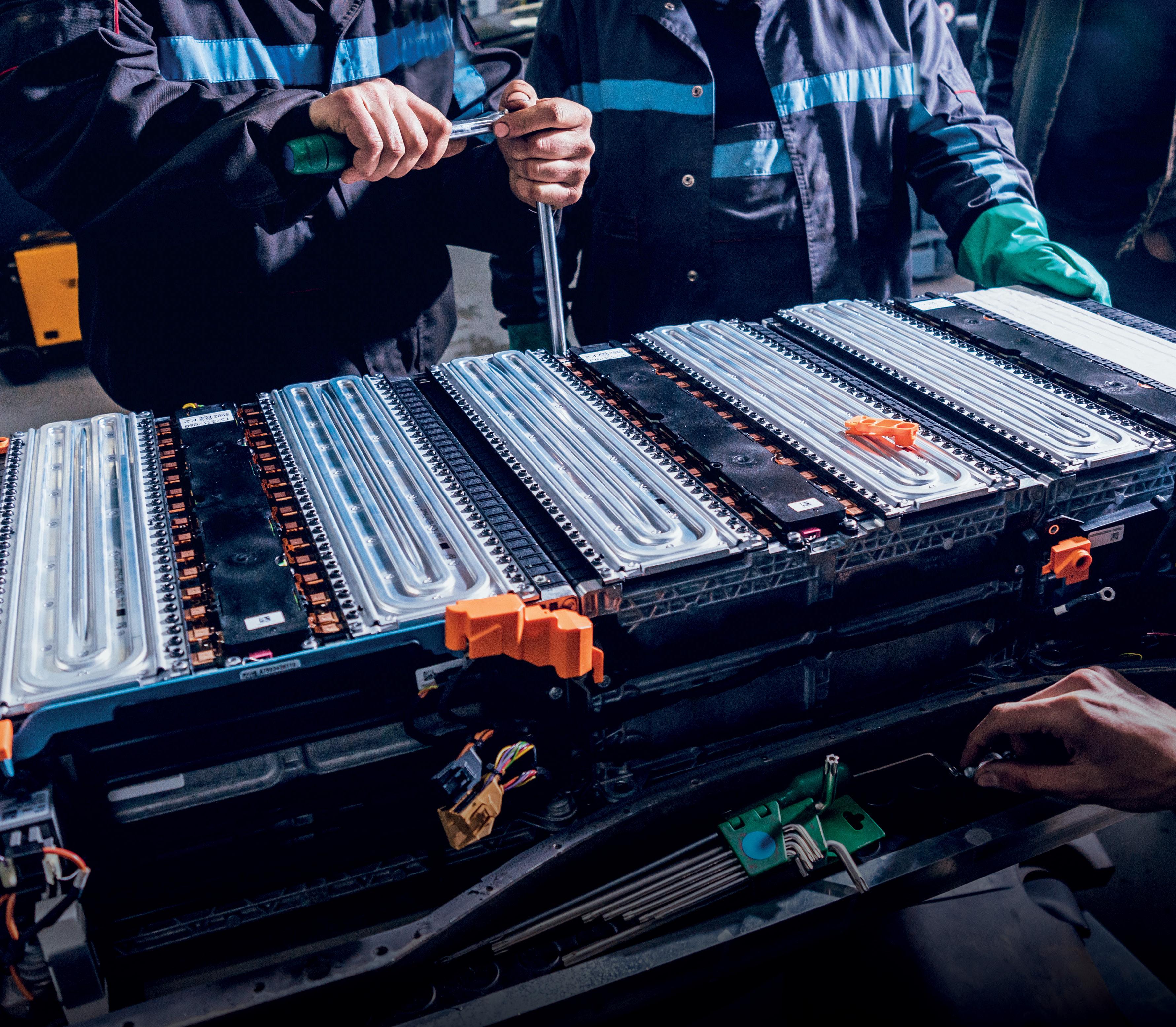
says Pandey. “This phenomenon, however, is not strictly a profit pool “shrinker” for aftermarket players. Opportunities exist in an investment in skill sets, offerings, and messaging that match the growing call for sustainability.”
For the aftermarket channel, electrification is arguably not even the most promising opportunity for them to address. There may be over 200 EV models announced by OEMs globally, but electrification is only one of trend of many being experienced by the channel as we head to the mid-way point of the decade.
Glasgow Research and Consulting’s Vishal Pandey has dug deep into the data
In the first of two articles, Glasgow Research and Consulting’s Vishal Pandey looks at the changing landscape of the global automotive aftermarket
Almost half of passenger vehicles sold in 2030 could be highly autonomous
2030
and surveyed the auto-industry to spot seven other disruptive forces shaping the channel. A promising application is how connected vehicles (CVs) are enabling predictive maintenance, Pandey notes CVs offer new features like route tracking, park and find, accident and breakdown assistance, dealer search, and vehicle status information.
“For aftermarket players, increasing connectivity delivers the potential of closer, more immediate relationships with customers,” he says. “Connectivity enables a new range of digital services, which customers can purchase on demand (e.g., onboard delivery of mobilityrelated services such as infotainment or concierge services, usage-based insurance, and personalised recommendations).”
As a further example, he explains that an advanced breakdown service will not only call for roadside assistance, but also transmit accident-specific data, helping the responding party deliver the most appropriate service by knowing in advance which car parts are necessary. The service will also recommend a location for servicing, and consumer research indicates that approximately 60% of drivers in the US, Germany, Brazil, and China would follow the recommendation.
CVs also offer greater scope for predictive maintenance, he adds: “The continuously sent status data of connected vehicles enable an instant analysis and check of the vehicle. If an actual or potential malfunction is detected, appropriate actions can be taken.”
Instead of vehicle service happening at regular time intervals, preventive service would be based on actual driving behaviour and vehicle usage.
“This type of service could increase in-workshop traffic through maintenance recommendations and targeted maintenance campaigns, especially when the warranty expires and customer loyalty usually drops.”
As per industry experts surveyed by Glasgow Research and Consulting, approximately half of passenger vehicles sold in 2030 could be highly autonomous with another 15% likely to be fully autonomous.
“Autonomous driving impacts the aftermarket in various ways,” says Pandey. “Over the last years, global advanced driver-assistance systems (ADAS) volumes grew significantly. ADAS and autonomous driving leading to fewer accidents but shorter maintenance intervals.”
Despite concerns from early adopter regarding the safety of autonomous
vehicles, Pandey believes the technology will ultimately lead to fewer accidents.
“AVs will reduce and eventually eliminate the human error element of driving. Decreased human control will be the main driver of a drop in the number of collisions, as more than 90% of all crashes in the US, for example, are primarily caused by driver action. This not only impacts the direct aftermarket players (e.g., body shops), but also intermediaries such as insurance companies, which will need to adapt their business model.”
“AVs are designed to operate optimally. Since much of a vehicle’s maintenance is related to how it is used (e.g., braking behavior) autonomous cars will experience less wear and tear. On the other hand, these vehicles need to be fully functional at all times and, therefore, will be equipped with more sensitive components (e.g., sensors), which will likely require more frequent diagnostic checks. In addition, the service interaction between customer and workshop will change since the vehicles might drive themselves to the workshop, taking in-person human interactions out of the equation.
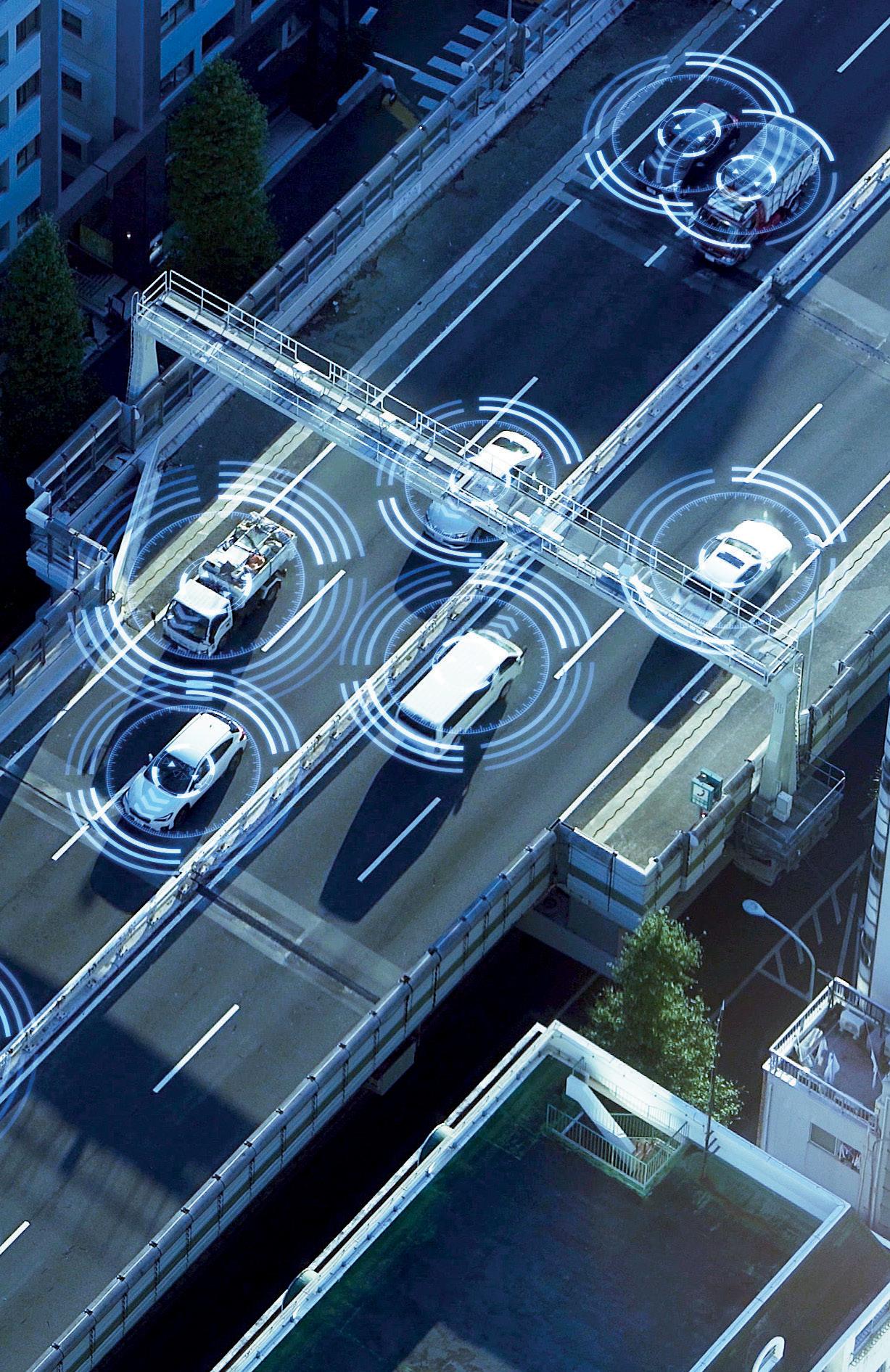
“AVs may shift liability more toward OEMs,” This has the potential to make OEM-backed service models preferable to independent service and repair models.”
Having weathered a pandemic, regulatory whiplash, and a host of other hurdles, shared mobility endures. Of his next standout disruptive trend, Pandey suggests that we are only at the beginning of a phenomenon that will encompass a huge range of vehicles.
“The next big things in shared mobility include autonomous taxis (so-called robo-taxis) and airborne varieties, which have lately seen increased traction,” says Pandey. “When considering future mobility modes, respondents are open to robo-taxis, with more than half of them interested in trading in their car in the future, while 7% of consumers express they would even pay a premium compared with owning a car. Brazilian and Chinese respondents expressed the greatest likelihood of switching to robo-taxis and shuttles in the future.”
“Survey respondents said that their main reason for using shared mobility is convenience. This reflects today’s dominance of e-hailing over other shared-mobility modes. The most important features of shared-mobility services for consumers are safety (which may reflect the impact of the COVID-19 crisis on our consumer survey at the end of 2020), a competitive price, and availability. The latter, especially, might be an important factor in shared mobility’s ability to replace private-car ownership in the long term. Notably, availability is the most important feature for German consumers.”
Since 2010, more than $100 billion has been invested in shared-mobility companies. Looking deeper into types of investors, it’s not the automotive players that are investing in shared-mobility companies. Instead, around 72% of the total amount of disclosed investment since 2010 has come from venture capital and private-equity players, suggesting a bet on the future rather than on established and already sustainable business models.
“Tech players are second at approximately 21%, while automotive-company investments amount to approximately 4%. One reason for the traditional automotive industry’s lackluster showing could involve shared mobility’s potential for disrupting an automotive player’s core business.”
In next month’s issue, Vishal Panday will look at how the aftermarket must adapt to survive the next wave of mobility disruption.
AVs are designed to operate optimally. Since much of a vehicle’s maintenance is related to how it is used, autonomous cars will experience less wear and tear”REDUCING HUMAN ERRORS Autonomous Vehicle technology will reduce and eventually eliminate the human error element of driving. Decreased human control will be the main driver of a drop in the number of collisions, says Pandey.
GMC and EarthCruiser Overland
Vehicles are teaming up to help “shape the future of overlanding” with focused product development and technologies that will provide zero-tailpipeemission solutions to the overlanding arena. Working with EarthCruiser’s research and design division, ECI (EarthCruiser Innovations), and informed by their extensive experience in the field, GMC is collaborating in the design and development process for a next-generation overland upfit solution for electric vehicles that will be integrated onto the HUMMER EV Pickup. GMC offers purpose-built vehicles designed and engineered to the highest standard. In 2019, the brand took its expertise in the premium offroading space to new levels with the introduction of the AT4 sub-brand, followed by the launch of the ultra-capable Sierra AT4X in 2022. GMC then introduced the most advanced off-road midsize truck with the Canyon AT4X.
GMC believes in an all-electric future and its commitment in this space is no exception. In 2020, the brand revealed the HUMMER EV Pickup, the world’s first all-electric supertruck, followed quickly by the HUMMER EV SUV in 2021. Most recently, GMC revealed the Sierra EV Denali, making it the first and only brand with three all-electric truck offerings.
“GMC has long been a leader in professionalgrade trucks with 100-plus years of uncompromising pickup capability, luxury and driver control,” said Josh Tavel, GM executive chief engineer, Battery Electric Trucks. “We had an instant connection with EarthCruiser — a leader in the overland community — and their similar vision to accelerate the zerotailpipe-emissions future. EarthCruiser products have proven their performance in environments around the world and we’re excited to join them on this next chapter of adventure and exploration.”

This collaboration will leverage EarthCruiser’s engineering expertise in the overland and off-road vehicle space, through its successful lineup of EC
Terranova, EarthCruiser EXP and FX overland vehicles, as well as their CORE line. GMC and EarthCruiser have come together to develop top-tier, zero-compromise adventure vehicles, leveraging EarthCruiser’s engineering technologies that have resulted in self-contained living habitats, while keeping capability and agility at the forefront.
“EarthCruiser designs its vehicles to thrive in the most extreme, toughest environments imaginable,” said EarthCruiser CEO/founder Lance Gillies. “From the Australian Outback to the Alaskan wilderness and everywhere in between, an EarthCruiser was made to tackle tough terrain. As we consider the future of overlanding, we are continuing to look toward key technologies like electrification that will help us explore for decades to come. Electrification presents exciting opportunities, such as precise torque control over terrain and ease-of-use, in addition to zero-tailpipe emissions. We’re thrilled to be working with GM’s team of EV engineers and look to develop an overland vehicle that’s truly made for, and will define, the future of this industry.”
NEXT ISSUE: THE FLEET AND MOBILITY SUMMIT, A BIRD’S EYE VIEW FROM A LOGISTICS PLAYER, AND MUCH MORE!
GMC and EarthCruiser combine to change the overland and off-road vehicle landscape

